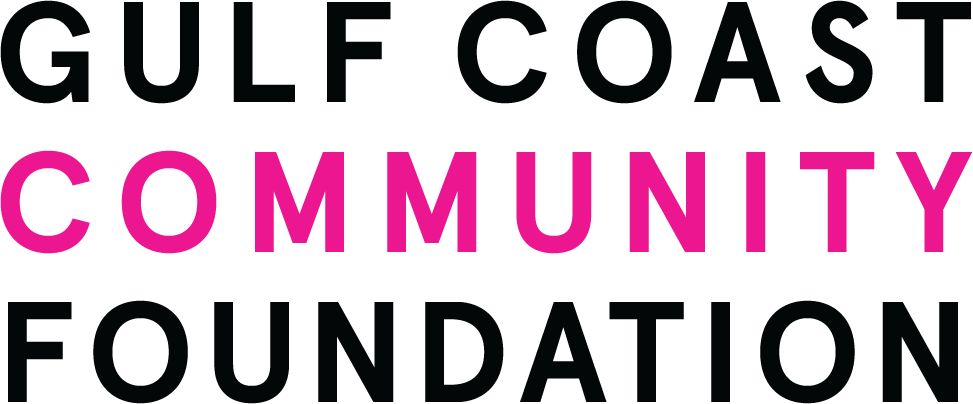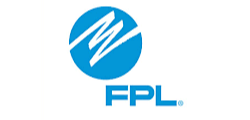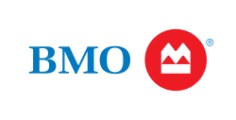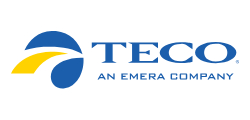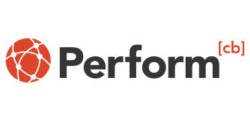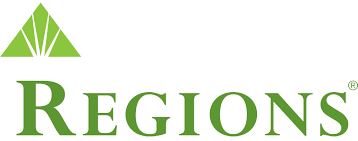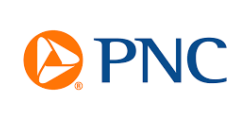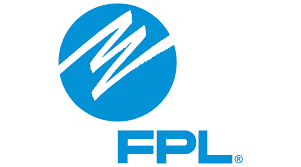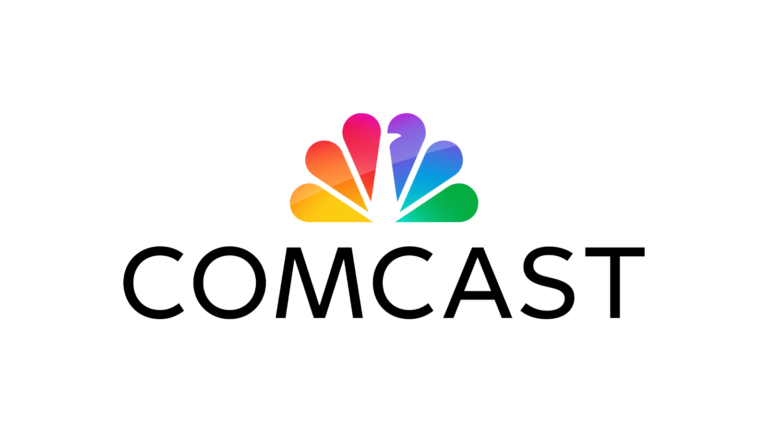[et_pb_section bb_built=”1″ _builder_version=”4.9.0″ background_image=”https://www.edcsarasotacounty.com/wp-content/uploads/2021/03/AdobeStock_403496492.jpg” vertical_offset_tablet=”0″ horizontal_offset_tablet=”0″ box_shadow_horizontal_tablet=”0px” box_shadow_vertical_tablet=”0px” box_shadow_blur_tablet=”40px” box_shadow_spread_tablet=”0px” next_background_color=”#ffffff”][et_pb_row column_structure=”3_5,2_5″ _builder_version=”4.7.7″ background_size=”initial” background_position=”top_left” background_repeat=”repeat” vertical_offset_tablet=”0″ horizontal_offset_tablet=”0″ max_width=”100%” z_index_tablet=”0″ box_shadow_horizontal_tablet=”0px” box_shadow_vertical_tablet=”0px” box_shadow_blur_tablet=”40px” box_shadow_spread_tablet=”0px”][et_pb_column type=”3_5″ _builder_version=”3.0.47″ custom_padding=”|||” custom_padding__hover=”|||”][/et_pb_column][et_pb_column type=”2_5″ _builder_version=”3.0.47″ background_color=”#ffffff” vertical_offset_tablet=”0″ vertical_offset_phone=”0″ horizontal_offset_tablet=”0″ horizontal_offset_phone=”0″ custom_padding=”20px|20px|20px|20px” custom_padding_tablet=”20px|20px|20px|20px” custom_padding_phone=”20px|20px|20px|20px” background_color_gradient_direction_tablet=”180deg” background_color_gradient_direction_phone=”180deg” background_color_gradient_start_position_tablet=”0%” background_color_gradient_start_position_phone=”0%” background_color_gradient_end_position_tablet=”100%” background_color_gradient_end_position_phone=”100%” z_index_tablet=”2″ z_index_phone=”2″ filter_hue_rotate_tablet=”0deg” filter_hue_rotate_phone=”0deg” filter_saturate_tablet=”100%” filter_saturate_phone=”100%” filter_brightness_tablet=”100%” filter_brightness_phone=”100%” filter_contrast_tablet=”100%” filter_contrast_phone=”100%” filter_invert_tablet=”0%” filter_invert_phone=”0%” filter_sepia_tablet=”0%” filter_sepia_phone=”0%” filter_opacity_tablet=”100%” filter_opacity_phone=”100%” filter_blur_tablet=”0px” filter_blur_phone=”0px” animation_duration_tablet=”1000ms” animation_duration_phone=”1000ms” animation_delay_tablet=”0ms” animation_delay_phone=”0ms” animation_intensity_slide_tablet=”50%” animation_intensity_slide_phone=”50%” animation_intensity_zoom_tablet=”50%” animation_intensity_zoom_phone=”50%” animation_intensity_flip_tablet=”50%” animation_intensity_flip_phone=”50%” animation_intensity_fold_tablet=”50%” animation_intensity_fold_phone=”50%” animation_intensity_roll_tablet=”50%” animation_intensity_roll_phone=”50%” animation_starting_opacity_tablet=”0%” animation_starting_opacity_phone=”0%” hover_transition_duration_tablet=”300ms” hover_transition_duration_phone=”300ms” hover_transition_delay_tablet=”0ms” hover_transition_delay_phone=”0ms” border_radii=”on|6px|6px|6px|6px” box_shadow_horizontal_tablet=”0px” box_shadow_horizontal_phone=”0px” box_shadow_vertical_tablet=”0px” box_shadow_vertical_phone=”0px” box_shadow_blur_tablet=”40px” box_shadow_blur_phone=”40px” box_shadow_spread_tablet=”0px” box_shadow_spread_phone=”0px” disabled=”%91object HTMLInputElement%93″ custom_padding__hover=”|||”][et_pb_text _builder_version=”4.14.1″ header_2_font_size=”56px” vertical_offset_tablet=”0″ horizontal_offset_tablet=”0″ z_index_tablet=”0″ text_text_shadow_horizontal_length_tablet=”0px” text_text_shadow_vertical_length_tablet=”0px” text_text_shadow_blur_strength_tablet=”1px” link_text_shadow_horizontal_length_tablet=”0px” link_text_shadow_vertical_length_tablet=”0px” link_text_shadow_blur_strength_tablet=”1px” ul_text_shadow_horizontal_length_tablet=”0px” ul_text_shadow_vertical_length_tablet=”0px” ul_text_shadow_blur_strength_tablet=”1px” ol_text_shadow_horizontal_length_tablet=”0px” ol_text_shadow_vertical_length_tablet=”0px” ol_text_shadow_blur_strength_tablet=”1px” quote_text_shadow_horizontal_length_tablet=”0px” quote_text_shadow_vertical_length_tablet=”0px” quote_text_shadow_blur_strength_tablet=”1px” header_text_shadow_horizontal_length_tablet=”0px” header_text_shadow_vertical_length_tablet=”0px” header_text_shadow_blur_strength_tablet=”1px” header_2_text_shadow_horizontal_length_tablet=”0px” header_2_text_shadow_vertical_length_tablet=”0px” header_2_text_shadow_blur_strength_tablet=”1px” header_3_text_shadow_horizontal_length_tablet=”0px” header_3_text_shadow_vertical_length_tablet=”0px” header_3_text_shadow_blur_strength_tablet=”1px” header_4_text_shadow_horizontal_length_tablet=”0px” header_4_text_shadow_vertical_length_tablet=”0px” header_4_text_shadow_blur_strength_tablet=”1px” header_5_text_shadow_horizontal_length_tablet=”0px” header_5_text_shadow_vertical_length_tablet=”0px” header_5_text_shadow_blur_strength_tablet=”1px” header_6_text_shadow_horizontal_length_tablet=”0px” header_6_text_shadow_vertical_length_tablet=”0px” header_6_text_shadow_blur_strength_tablet=”1px” box_shadow_horizontal_tablet=”0px” box_shadow_vertical_tablet=”0px” box_shadow_blur_tablet=”40px” box_shadow_spread_tablet=”0px” text_text_shadow_horizontal_length=”text_text_shadow_style,%91object Object%93″ text_text_shadow_vertical_length=”text_text_shadow_style,%91object Object%93″ text_text_shadow_blur_strength=”text_text_shadow_style,%91object Object%93″ link_text_shadow_horizontal_length=”link_text_shadow_style,%91object Object%93″ link_text_shadow_vertical_length=”link_text_shadow_style,%91object Object%93″ link_text_shadow_blur_strength=”link_text_shadow_style,%91object Object%93″ ul_text_shadow_horizontal_length=”ul_text_shadow_style,%91object Object%93″ ul_text_shadow_vertical_length=”ul_text_shadow_style,%91object Object%93″ ul_text_shadow_blur_strength=”ul_text_shadow_style,%91object Object%93″ ol_text_shadow_horizontal_length=”ol_text_shadow_style,%91object Object%93″ ol_text_shadow_vertical_length=”ol_text_shadow_style,%91object Object%93″ ol_text_shadow_blur_strength=”ol_text_shadow_style,%91object Object%93″ quote_text_shadow_horizontal_length=”quote_text_shadow_style,%91object Object%93″ quote_text_shadow_vertical_length=”quote_text_shadow_style,%91object Object%93″ quote_text_shadow_blur_strength=”quote_text_shadow_style,%91object Object%93″ header_text_shadow_horizontal_length=”header_text_shadow_style,%91object Object%93″ header_text_shadow_vertical_length=”header_text_shadow_style,%91object Object%93″ header_text_shadow_blur_strength=”header_text_shadow_style,%91object Object%93″ header_2_text_shadow_horizontal_length=”header_2_text_shadow_style,%91object Object%93″ header_2_text_shadow_vertical_length=”header_2_text_shadow_style,%91object Object%93″ header_2_text_shadow_blur_strength=”header_2_text_shadow_style,%91object Object%93″ header_3_text_shadow_horizontal_length=”header_3_text_shadow_style,%91object Object%93″ header_3_text_shadow_vertical_length=”header_3_text_shadow_style,%91object Object%93″ header_3_text_shadow_blur_strength=”header_3_text_shadow_style,%91object Object%93″ header_4_text_shadow_horizontal_length=”header_4_text_shadow_style,%91object Object%93″ header_4_text_shadow_vertical_length=”header_4_text_shadow_style,%91object Object%93″ header_4_text_shadow_blur_strength=”header_4_text_shadow_style,%91object Object%93″ header_5_text_shadow_horizontal_length=”header_5_text_shadow_style,%91object Object%93″ header_5_text_shadow_vertical_length=”header_5_text_shadow_style,%91object Object%93″ header_5_text_shadow_blur_strength=”header_5_text_shadow_style,%91object Object%93″ header_6_text_shadow_horizontal_length=”header_6_text_shadow_style,%91object Object%93″ header_6_text_shadow_vertical_length=”header_6_text_shadow_style,%91object Object%93″ header_6_text_shadow_blur_strength=”header_6_text_shadow_style,%91object Object%93″ header_2_font_size_phone=”46″ header_2_font_size_last_edited=”on|phone” header_font_size=”56px” header_font_size_phone=”46″ header_font_size_last_edited=”on|phone”]
Financing
Whether you’re starting, expanding or relocating your business, financing is one of the big questions. Our team partners with lenders and other outside organizations to help businesses access capital they need to reach their full potential.
[/et_pb_text][/et_pb_column][/et_pb_row][/et_pb_section][et_pb_section bb_built=”1″ make_equal=”on” specialty=”on” background_color_2=”rgba(247,247,247,0.84)” padding_top_2=”25px” padding_right_2=”25px” padding_bottom_2=”25px” padding_left_2=”25px” _builder_version=”4.8.2″ vertical_offset_tablet=”0″ horizontal_offset_tablet=”0″ custom_padding=”||150px|” box_shadow_horizontal_tablet=”0px” box_shadow_vertical_tablet=”0px” box_shadow_blur_tablet=”40px” box_shadow_spread_tablet=”0px” prev_background_color=”#000000″ next_background_color=”rgba(247,247,247,0.84)”][et_pb_column type=”2_3″ specialty_columns=”4″][et_pb_row_inner column_structure=”undefined” _builder_version=”3.25″][et_pb_column_inner type=”4_4″ saved_specialty_column_type=”2_3″ custom_padding__hover=”|||” custom_padding=”|||” saved_specialty_column_type=”2_3″][et_pb_text _builder_version=”4.14.1″ header_2_font_size=”56px” vertical_offset_tablet=”0″ horizontal_offset_tablet=”0″ z_index_tablet=”0″ text_text_shadow_horizontal_length_tablet=”0px” text_text_shadow_vertical_length_tablet=”0px” text_text_shadow_blur_strength_tablet=”1px” link_text_shadow_horizontal_length_tablet=”0px” link_text_shadow_vertical_length_tablet=”0px” link_text_shadow_blur_strength_tablet=”1px” ul_text_shadow_horizontal_length_tablet=”0px” ul_text_shadow_vertical_length_tablet=”0px” ul_text_shadow_blur_strength_tablet=”1px” ol_text_shadow_horizontal_length_tablet=”0px” ol_text_shadow_vertical_length_tablet=”0px” ol_text_shadow_blur_strength_tablet=”1px” quote_text_shadow_horizontal_length_tablet=”0px” quote_text_shadow_vertical_length_tablet=”0px” quote_text_shadow_blur_strength_tablet=”1px” header_text_shadow_horizontal_length_tablet=”0px” header_text_shadow_vertical_length_tablet=”0px” header_text_shadow_blur_strength_tablet=”1px” header_2_text_shadow_horizontal_length_tablet=”0px” header_2_text_shadow_vertical_length_tablet=”0px” header_2_text_shadow_blur_strength_tablet=”1px” header_3_text_shadow_horizontal_length_tablet=”0px” header_3_text_shadow_vertical_length_tablet=”0px” header_3_text_shadow_blur_strength_tablet=”1px” header_4_text_shadow_horizontal_length_tablet=”0px” header_4_text_shadow_vertical_length_tablet=”0px” header_4_text_shadow_blur_strength_tablet=”1px” header_5_text_shadow_horizontal_length_tablet=”0px” header_5_text_shadow_vertical_length_tablet=”0px” header_5_text_shadow_blur_strength_tablet=”1px” header_6_text_shadow_horizontal_length_tablet=”0px” header_6_text_shadow_vertical_length_tablet=”0px” header_6_text_shadow_blur_strength_tablet=”1px” box_shadow_horizontal_tablet=”0px” box_shadow_vertical_tablet=”0px” box_shadow_blur_tablet=”40px” box_shadow_spread_tablet=”0px” text_text_shadow_horizontal_length=”text_text_shadow_style,%91object Object%93″ text_text_shadow_vertical_length=”text_text_shadow_style,%91object Object%93″ text_text_shadow_blur_strength=”text_text_shadow_style,%91object Object%93″ link_text_shadow_horizontal_length=”link_text_shadow_style,%91object Object%93″ link_text_shadow_vertical_length=”link_text_shadow_style,%91object Object%93″ link_text_shadow_blur_strength=”link_text_shadow_style,%91object Object%93″ ul_text_shadow_horizontal_length=”ul_text_shadow_style,%91object Object%93″ ul_text_shadow_vertical_length=”ul_text_shadow_style,%91object Object%93″ ul_text_shadow_blur_strength=”ul_text_shadow_style,%91object Object%93″ ol_text_shadow_horizontal_length=”ol_text_shadow_style,%91object Object%93″ ol_text_shadow_vertical_length=”ol_text_shadow_style,%91object Object%93″ ol_text_shadow_blur_strength=”ol_text_shadow_style,%91object Object%93″ quote_text_shadow_horizontal_length=”quote_text_shadow_style,%91object Object%93″ quote_text_shadow_vertical_length=”quote_text_shadow_style,%91object Object%93″ quote_text_shadow_blur_strength=”quote_text_shadow_style,%91object Object%93″ header_text_shadow_horizontal_length=”header_text_shadow_style,%91object Object%93″ header_text_shadow_vertical_length=”header_text_shadow_style,%91object Object%93″ header_text_shadow_blur_strength=”header_text_shadow_style,%91object Object%93″ header_2_text_shadow_horizontal_length=”header_2_text_shadow_style,%91object Object%93″ header_2_text_shadow_vertical_length=”header_2_text_shadow_style,%91object Object%93″ header_2_text_shadow_blur_strength=”header_2_text_shadow_style,%91object Object%93″ header_3_text_shadow_horizontal_length=”header_3_text_shadow_style,%91object Object%93″ header_3_text_shadow_vertical_length=”header_3_text_shadow_style,%91object Object%93″ header_3_text_shadow_blur_strength=”header_3_text_shadow_style,%91object Object%93″ header_4_text_shadow_horizontal_length=”header_4_text_shadow_style,%91object Object%93″ header_4_text_shadow_vertical_length=”header_4_text_shadow_style,%91object Object%93″ header_4_text_shadow_blur_strength=”header_4_text_shadow_style,%91object Object%93″ header_5_text_shadow_horizontal_length=”header_5_text_shadow_style,%91object Object%93″ header_5_text_shadow_vertical_length=”header_5_text_shadow_style,%91object Object%93″ header_5_text_shadow_blur_strength=”header_5_text_shadow_style,%91object Object%93″ header_6_text_shadow_horizontal_length=”header_6_text_shadow_style,%91object Object%93″ header_6_text_shadow_vertical_length=”header_6_text_shadow_style,%91object Object%93″ header_6_text_shadow_blur_strength=”header_6_text_shadow_style,%91object Object%93″ header_2_font_size_phone=”46″ header_2_font_size_last_edited=”on|phone”]
What Type of Funding is Available?
There are many ways to finance a business venture—especially if you’re just starting out. Below are just a few of the options available to small businesses in Florida. To explore these or any other possibilities, contact us. We’re here to help.
[/et_pb_text][/et_pb_column_inner][/et_pb_row_inner][et_pb_row_inner admin_label=”Row” column_structure=”undefined” _builder_version=”4.14.1″ background_color=”rgba(247,247,247,0.84)” vertical_offset_tablet=”0″ horizontal_offset_tablet=”0″ custom_margin=”||25px|” custom_padding=”25px|25px|25px|25px” link_option_url_new_window=”on” z_index_tablet=”0″ border_radii=”on|6px|6px|6px|6px” border_color_right=”#006b7d” box_shadow_horizontal_tablet=”0px” box_shadow_vertical_tablet=”0px” box_shadow_blur_tablet=”40px” box_shadow_spread_tablet=”0px” border_width_right__hover_enabled=”on|hover” border_width_right__hover=”10px”][et_pb_column_inner type=”4_4″ saved_specialty_column_type=”2_3″ custom_padding__hover=”|||” custom_padding=”|||” saved_specialty_column_type=”2_3″][et_pb_text admin_label=”Self-finance” _builder_version=”4.14.1″ header_2_text_color=”#006b7d” vertical_offset_tablet=”0″ horizontal_offset_tablet=”0″ custom_margin=”||15px|” header_2_font_size_last_edited=”on|phone” z_index_tablet=”0″ text_text_shadow_horizontal_length_tablet=”0px” text_text_shadow_vertical_length_tablet=”0px” text_text_shadow_blur_strength_tablet=”1px” link_text_shadow_horizontal_length_tablet=”0px” link_text_shadow_vertical_length_tablet=”0px” link_text_shadow_blur_strength_tablet=”1px” ul_text_shadow_horizontal_length_tablet=”0px” ul_text_shadow_vertical_length_tablet=”0px” ul_text_shadow_blur_strength_tablet=”1px” ol_text_shadow_horizontal_length_tablet=”0px” ol_text_shadow_vertical_length_tablet=”0px” ol_text_shadow_blur_strength_tablet=”1px” quote_text_shadow_horizontal_length_tablet=”0px” quote_text_shadow_vertical_length_tablet=”0px” quote_text_shadow_blur_strength_tablet=”1px” header_text_shadow_horizontal_length_tablet=”0px” header_text_shadow_vertical_length_tablet=”0px” header_text_shadow_blur_strength_tablet=”1px” header_2_text_shadow_horizontal_length_tablet=”0px” header_2_text_shadow_vertical_length_tablet=”0px” header_2_text_shadow_blur_strength_tablet=”1px” header_3_text_shadow_horizontal_length_tablet=”0px” header_3_text_shadow_vertical_length_tablet=”0px” header_3_text_shadow_blur_strength_tablet=”1px” header_4_text_shadow_horizontal_length_tablet=”0px” header_4_text_shadow_vertical_length_tablet=”0px” header_4_text_shadow_blur_strength_tablet=”1px” header_5_text_shadow_horizontal_length_tablet=”0px” header_5_text_shadow_vertical_length_tablet=”0px” header_5_text_shadow_blur_strength_tablet=”1px” header_6_text_shadow_horizontal_length_tablet=”0px” header_6_text_shadow_vertical_length_tablet=”0px” header_6_text_shadow_blur_strength_tablet=”1px” box_shadow_horizontal_tablet=”0px” box_shadow_vertical_tablet=”0px” box_shadow_blur_tablet=”40px” box_shadow_spread_tablet=”0px” text_text_shadow_horizontal_length=”text_text_shadow_style,%91object Object%93″ text_text_shadow_vertical_length=”text_text_shadow_style,%91object Object%93″ text_text_shadow_blur_strength=”text_text_shadow_style,%91object Object%93″ link_text_shadow_horizontal_length=”link_text_shadow_style,%91object Object%93″ link_text_shadow_vertical_length=”link_text_shadow_style,%91object Object%93″ link_text_shadow_blur_strength=”link_text_shadow_style,%91object Object%93″ ul_text_shadow_horizontal_length=”ul_text_shadow_style,%91object Object%93″ ul_text_shadow_vertical_length=”ul_text_shadow_style,%91object Object%93″ ul_text_shadow_blur_strength=”ul_text_shadow_style,%91object Object%93″ ol_text_shadow_horizontal_length=”ol_text_shadow_style,%91object Object%93″ ol_text_shadow_vertical_length=”ol_text_shadow_style,%91object Object%93″ ol_text_shadow_blur_strength=”ol_text_shadow_style,%91object Object%93″ quote_text_shadow_horizontal_length=”quote_text_shadow_style,%91object Object%93″ quote_text_shadow_vertical_length=”quote_text_shadow_style,%91object Object%93″ quote_text_shadow_blur_strength=”quote_text_shadow_style,%91object Object%93″ header_text_shadow_horizontal_length=”header_text_shadow_style,%91object Object%93″ header_text_shadow_vertical_length=”header_text_shadow_style,%91object Object%93″ header_text_shadow_blur_strength=”header_text_shadow_style,%91object Object%93″ header_2_text_shadow_horizontal_length=”header_2_text_shadow_style,%91object Object%93″ header_2_text_shadow_vertical_length=”header_2_text_shadow_style,%91object Object%93″ header_2_text_shadow_blur_strength=”header_2_text_shadow_style,%91object Object%93″ header_3_text_shadow_horizontal_length=”header_3_text_shadow_style,%91object Object%93″ header_3_text_shadow_vertical_length=”header_3_text_shadow_style,%91object Object%93″ header_3_text_shadow_blur_strength=”header_3_text_shadow_style,%91object Object%93″ header_4_text_shadow_horizontal_length=”header_4_text_shadow_style,%91object Object%93″ header_4_text_shadow_vertical_length=”header_4_text_shadow_style,%91object Object%93″ header_4_text_shadow_blur_strength=”header_4_text_shadow_style,%91object Object%93″ header_5_text_shadow_horizontal_length=”header_5_text_shadow_style,%91object Object%93″ header_5_text_shadow_vertical_length=”header_5_text_shadow_style,%91object Object%93″ header_5_text_shadow_blur_strength=”header_5_text_shadow_style,%91object Object%93″ header_6_text_shadow_horizontal_length=”header_6_text_shadow_style,%91object Object%93″ header_6_text_shadow_vertical_length=”header_6_text_shadow_style,%91object Object%93″ header_6_text_shadow_blur_strength=”header_6_text_shadow_style,%91object Object%93″]
Self-finance
[/et_pb_text][et_pb_text _builder_version=”4.8.2″ header_2_font_size=”56px” vertical_offset_tablet=”0″ horizontal_offset_tablet=”0″ z_index_tablet=”0″ text_text_shadow_horizontal_length_tablet=”0px” text_text_shadow_vertical_length_tablet=”0px” text_text_shadow_blur_strength_tablet=”1px” link_text_shadow_horizontal_length_tablet=”0px” link_text_shadow_vertical_length_tablet=”0px” link_text_shadow_blur_strength_tablet=”1px” ul_text_shadow_horizontal_length_tablet=”0px” ul_text_shadow_vertical_length_tablet=”0px” ul_text_shadow_blur_strength_tablet=”1px” ol_text_shadow_horizontal_length_tablet=”0px” ol_text_shadow_vertical_length_tablet=”0px” ol_text_shadow_blur_strength_tablet=”1px” quote_text_shadow_horizontal_length_tablet=”0px” quote_text_shadow_vertical_length_tablet=”0px” quote_text_shadow_blur_strength_tablet=”1px” header_text_shadow_horizontal_length_tablet=”0px” header_text_shadow_vertical_length_tablet=”0px” header_text_shadow_blur_strength_tablet=”1px” header_2_text_shadow_horizontal_length_tablet=”0px” header_2_text_shadow_vertical_length_tablet=”0px” header_2_text_shadow_blur_strength_tablet=”1px” header_3_text_shadow_horizontal_length_tablet=”0px” header_3_text_shadow_vertical_length_tablet=”0px” header_3_text_shadow_blur_strength_tablet=”1px” header_4_text_shadow_horizontal_length_tablet=”0px” header_4_text_shadow_vertical_length_tablet=”0px” header_4_text_shadow_blur_strength_tablet=”1px” header_5_text_shadow_horizontal_length_tablet=”0px” header_5_text_shadow_vertical_length_tablet=”0px” header_5_text_shadow_blur_strength_tablet=”1px” header_6_text_shadow_horizontal_length_tablet=”0px” header_6_text_shadow_vertical_length_tablet=”0px” header_6_text_shadow_blur_strength_tablet=”1px” box_shadow_horizontal_tablet=”0px” box_shadow_vertical_tablet=”0px” box_shadow_blur_tablet=”40px” box_shadow_spread_tablet=”0px” text_text_shadow_horizontal_length=”text_text_shadow_style,%91object Object%93″ text_text_shadow_vertical_length=”text_text_shadow_style,%91object Object%93″ text_text_shadow_blur_strength=”text_text_shadow_style,%91object Object%93″ link_text_shadow_horizontal_length=”link_text_shadow_style,%91object Object%93″ link_text_shadow_vertical_length=”link_text_shadow_style,%91object Object%93″ link_text_shadow_blur_strength=”link_text_shadow_style,%91object Object%93″ ul_text_shadow_horizontal_length=”ul_text_shadow_style,%91object Object%93″ ul_text_shadow_vertical_length=”ul_text_shadow_style,%91object Object%93″ ul_text_shadow_blur_strength=”ul_text_shadow_style,%91object Object%93″ ol_text_shadow_horizontal_length=”ol_text_shadow_style,%91object Object%93″ ol_text_shadow_vertical_length=”ol_text_shadow_style,%91object Object%93″ ol_text_shadow_blur_strength=”ol_text_shadow_style,%91object Object%93″ quote_text_shadow_horizontal_length=”quote_text_shadow_style,%91object Object%93″ quote_text_shadow_vertical_length=”quote_text_shadow_style,%91object Object%93″ quote_text_shadow_blur_strength=”quote_text_shadow_style,%91object Object%93″ header_text_shadow_horizontal_length=”header_text_shadow_style,%91object Object%93″ header_text_shadow_vertical_length=”header_text_shadow_style,%91object Object%93″ header_text_shadow_blur_strength=”header_text_shadow_style,%91object Object%93″ header_2_text_shadow_horizontal_length=”header_2_text_shadow_style,%91object Object%93″ header_2_text_shadow_vertical_length=”header_2_text_shadow_style,%91object Object%93″ header_2_text_shadow_blur_strength=”header_2_text_shadow_style,%91object Object%93″ header_3_text_shadow_horizontal_length=”header_3_text_shadow_style,%91object Object%93″ header_3_text_shadow_vertical_length=”header_3_text_shadow_style,%91object Object%93″ header_3_text_shadow_blur_strength=”header_3_text_shadow_style,%91object Object%93″ header_4_text_shadow_horizontal_length=”header_4_text_shadow_style,%91object Object%93″ header_4_text_shadow_vertical_length=”header_4_text_shadow_style,%91object Object%93″ header_4_text_shadow_blur_strength=”header_4_text_shadow_style,%91object Object%93″ header_5_text_shadow_horizontal_length=”header_5_text_shadow_style,%91object Object%93″ header_5_text_shadow_vertical_length=”header_5_text_shadow_style,%91object Object%93″ header_5_text_shadow_blur_strength=”header_5_text_shadow_style,%91object Object%93″ header_6_text_shadow_horizontal_length=”header_6_text_shadow_style,%91object Object%93″ header_6_text_shadow_vertical_length=”header_6_text_shadow_style,%91object Object%93″ header_6_text_shadow_blur_strength=”header_6_text_shadow_style,%91object Object%93″]
Without a doubt, self-financing a business venture is one of the best options for startups. Before you seek money from someone else, use your own funds to begin. Credit card(s) is also a possibility, but only with favorable interest rates.
[/et_pb_text][/et_pb_column_inner][/et_pb_row_inner][et_pb_row_inner admin_label=”Row” column_structure=”undefined” _builder_version=”4.14.1″ background_color=”rgba(247,247,247,0.84)” vertical_offset_tablet=”0″ horizontal_offset_tablet=”0″ custom_margin=”||25px|” custom_padding=”25px|25px|25px|25px” link_option_url_new_window=”on” z_index_tablet=”0″ border_radii=”on|6px|6px|6px|6px” border_color_right=”#006b7d” box_shadow_horizontal_tablet=”0px” box_shadow_vertical_tablet=”0px” box_shadow_blur_tablet=”40px” box_shadow_spread_tablet=”0px” border_width_right__hover_enabled=”on|hover” border_width_right__hover=”10px”][et_pb_column_inner type=”4_4″ saved_specialty_column_type=”2_3″ custom_padding__hover=”|||” custom_padding=”|||” saved_specialty_column_type=”2_3″][et_pb_text admin_label=”Borrowing” _builder_version=”4.14.1″ header_2_text_color=”#006b7d” vertical_offset_tablet=”0″ horizontal_offset_tablet=”0″ custom_margin=”||15px|” header_2_font_size_last_edited=”on|phone” z_index_tablet=”0″ text_text_shadow_horizontal_length_tablet=”0px” text_text_shadow_vertical_length_tablet=”0px” text_text_shadow_blur_strength_tablet=”1px” link_text_shadow_horizontal_length_tablet=”0px” link_text_shadow_vertical_length_tablet=”0px” link_text_shadow_blur_strength_tablet=”1px” ul_text_shadow_horizontal_length_tablet=”0px” ul_text_shadow_vertical_length_tablet=”0px” ul_text_shadow_blur_strength_tablet=”1px” ol_text_shadow_horizontal_length_tablet=”0px” ol_text_shadow_vertical_length_tablet=”0px” ol_text_shadow_blur_strength_tablet=”1px” quote_text_shadow_horizontal_length_tablet=”0px” quote_text_shadow_vertical_length_tablet=”0px” quote_text_shadow_blur_strength_tablet=”1px” header_text_shadow_horizontal_length_tablet=”0px” header_text_shadow_vertical_length_tablet=”0px” header_text_shadow_blur_strength_tablet=”1px” header_2_text_shadow_horizontal_length_tablet=”0px” header_2_text_shadow_vertical_length_tablet=”0px” header_2_text_shadow_blur_strength_tablet=”1px” header_3_text_shadow_horizontal_length_tablet=”0px” header_3_text_shadow_vertical_length_tablet=”0px” header_3_text_shadow_blur_strength_tablet=”1px” header_4_text_shadow_horizontal_length_tablet=”0px” header_4_text_shadow_vertical_length_tablet=”0px” header_4_text_shadow_blur_strength_tablet=”1px” header_5_text_shadow_horizontal_length_tablet=”0px” header_5_text_shadow_vertical_length_tablet=”0px” header_5_text_shadow_blur_strength_tablet=”1px” header_6_text_shadow_horizontal_length_tablet=”0px” header_6_text_shadow_vertical_length_tablet=”0px” header_6_text_shadow_blur_strength_tablet=”1px” box_shadow_horizontal_tablet=”0px” box_shadow_vertical_tablet=”0px” box_shadow_blur_tablet=”40px” box_shadow_spread_tablet=”0px” text_text_shadow_horizontal_length=”text_text_shadow_style,%91object Object%93″ text_text_shadow_vertical_length=”text_text_shadow_style,%91object Object%93″ text_text_shadow_blur_strength=”text_text_shadow_style,%91object Object%93″ link_text_shadow_horizontal_length=”link_text_shadow_style,%91object Object%93″ link_text_shadow_vertical_length=”link_text_shadow_style,%91object Object%93″ link_text_shadow_blur_strength=”link_text_shadow_style,%91object Object%93″ ul_text_shadow_horizontal_length=”ul_text_shadow_style,%91object Object%93″ ul_text_shadow_vertical_length=”ul_text_shadow_style,%91object Object%93″ ul_text_shadow_blur_strength=”ul_text_shadow_style,%91object Object%93″ ol_text_shadow_horizontal_length=”ol_text_shadow_style,%91object Object%93″ ol_text_shadow_vertical_length=”ol_text_shadow_style,%91object Object%93″ ol_text_shadow_blur_strength=”ol_text_shadow_style,%91object Object%93″ quote_text_shadow_horizontal_length=”quote_text_shadow_style,%91object Object%93″ quote_text_shadow_vertical_length=”quote_text_shadow_style,%91object Object%93″ quote_text_shadow_blur_strength=”quote_text_shadow_style,%91object Object%93″ header_text_shadow_horizontal_length=”header_text_shadow_style,%91object Object%93″ header_text_shadow_vertical_length=”header_text_shadow_style,%91object Object%93″ header_text_shadow_blur_strength=”header_text_shadow_style,%91object Object%93″ header_2_text_shadow_horizontal_length=”header_2_text_shadow_style,%91object Object%93″ header_2_text_shadow_vertical_length=”header_2_text_shadow_style,%91object Object%93″ header_2_text_shadow_blur_strength=”header_2_text_shadow_style,%91object Object%93″ header_3_text_shadow_horizontal_length=”header_3_text_shadow_style,%91object Object%93″ header_3_text_shadow_vertical_length=”header_3_text_shadow_style,%91object Object%93″ header_3_text_shadow_blur_strength=”header_3_text_shadow_style,%91object Object%93″ header_4_text_shadow_horizontal_length=”header_4_text_shadow_style,%91object Object%93″ header_4_text_shadow_vertical_length=”header_4_text_shadow_style,%91object Object%93″ header_4_text_shadow_blur_strength=”header_4_text_shadow_style,%91object Object%93″ header_5_text_shadow_horizontal_length=”header_5_text_shadow_style,%91object Object%93″ header_5_text_shadow_vertical_length=”header_5_text_shadow_style,%91object Object%93″ header_5_text_shadow_blur_strength=”header_5_text_shadow_style,%91object Object%93″ header_6_text_shadow_horizontal_length=”header_6_text_shadow_style,%91object Object%93″ header_6_text_shadow_vertical_length=”header_6_text_shadow_style,%91object Object%93″ header_6_text_shadow_blur_strength=”header_6_text_shadow_style,%91object Object%93″]
Borrowing
[/et_pb_text][et_pb_text _builder_version=”4.8.2″ header_2_font_size=”56px” vertical_offset_tablet=”0″ horizontal_offset_tablet=”0″ z_index_tablet=”0″ text_text_shadow_horizontal_length_tablet=”0px” text_text_shadow_vertical_length_tablet=”0px” text_text_shadow_blur_strength_tablet=”1px” link_text_shadow_horizontal_length_tablet=”0px” link_text_shadow_vertical_length_tablet=”0px” link_text_shadow_blur_strength_tablet=”1px” ul_text_shadow_horizontal_length_tablet=”0px” ul_text_shadow_vertical_length_tablet=”0px” ul_text_shadow_blur_strength_tablet=”1px” ol_text_shadow_horizontal_length_tablet=”0px” ol_text_shadow_vertical_length_tablet=”0px” ol_text_shadow_blur_strength_tablet=”1px” quote_text_shadow_horizontal_length_tablet=”0px” quote_text_shadow_vertical_length_tablet=”0px” quote_text_shadow_blur_strength_tablet=”1px” header_text_shadow_horizontal_length_tablet=”0px” header_text_shadow_vertical_length_tablet=”0px” header_text_shadow_blur_strength_tablet=”1px” header_2_text_shadow_horizontal_length_tablet=”0px” header_2_text_shadow_vertical_length_tablet=”0px” header_2_text_shadow_blur_strength_tablet=”1px” header_3_text_shadow_horizontal_length_tablet=”0px” header_3_text_shadow_vertical_length_tablet=”0px” header_3_text_shadow_blur_strength_tablet=”1px” header_4_text_shadow_horizontal_length_tablet=”0px” header_4_text_shadow_vertical_length_tablet=”0px” header_4_text_shadow_blur_strength_tablet=”1px” header_5_text_shadow_horizontal_length_tablet=”0px” header_5_text_shadow_vertical_length_tablet=”0px” header_5_text_shadow_blur_strength_tablet=”1px” header_6_text_shadow_horizontal_length_tablet=”0px” header_6_text_shadow_vertical_length_tablet=”0px” header_6_text_shadow_blur_strength_tablet=”1px” box_shadow_horizontal_tablet=”0px” box_shadow_vertical_tablet=”0px” box_shadow_blur_tablet=”40px” box_shadow_spread_tablet=”0px” text_text_shadow_horizontal_length=”text_text_shadow_style,%91object Object%93″ text_text_shadow_vertical_length=”text_text_shadow_style,%91object Object%93″ text_text_shadow_blur_strength=”text_text_shadow_style,%91object Object%93″ link_text_shadow_horizontal_length=”link_text_shadow_style,%91object Object%93″ link_text_shadow_vertical_length=”link_text_shadow_style,%91object Object%93″ link_text_shadow_blur_strength=”link_text_shadow_style,%91object Object%93″ ul_text_shadow_horizontal_length=”ul_text_shadow_style,%91object Object%93″ ul_text_shadow_vertical_length=”ul_text_shadow_style,%91object Object%93″ ul_text_shadow_blur_strength=”ul_text_shadow_style,%91object Object%93″ ol_text_shadow_horizontal_length=”ol_text_shadow_style,%91object Object%93″ ol_text_shadow_vertical_length=”ol_text_shadow_style,%91object Object%93″ ol_text_shadow_blur_strength=”ol_text_shadow_style,%91object Object%93″ quote_text_shadow_horizontal_length=”quote_text_shadow_style,%91object Object%93″ quote_text_shadow_vertical_length=”quote_text_shadow_style,%91object Object%93″ quote_text_shadow_blur_strength=”quote_text_shadow_style,%91object Object%93″ header_text_shadow_horizontal_length=”header_text_shadow_style,%91object Object%93″ header_text_shadow_vertical_length=”header_text_shadow_style,%91object Object%93″ header_text_shadow_blur_strength=”header_text_shadow_style,%91object Object%93″ header_2_text_shadow_horizontal_length=”header_2_text_shadow_style,%91object Object%93″ header_2_text_shadow_vertical_length=”header_2_text_shadow_style,%91object Object%93″ header_2_text_shadow_blur_strength=”header_2_text_shadow_style,%91object Object%93″ header_3_text_shadow_horizontal_length=”header_3_text_shadow_style,%91object Object%93″ header_3_text_shadow_vertical_length=”header_3_text_shadow_style,%91object Object%93″ header_3_text_shadow_blur_strength=”header_3_text_shadow_style,%91object Object%93″ header_4_text_shadow_horizontal_length=”header_4_text_shadow_style,%91object Object%93″ header_4_text_shadow_vertical_length=”header_4_text_shadow_style,%91object Object%93″ header_4_text_shadow_blur_strength=”header_4_text_shadow_style,%91object Object%93″ header_5_text_shadow_horizontal_length=”header_5_text_shadow_style,%91object Object%93″ header_5_text_shadow_vertical_length=”header_5_text_shadow_style,%91object Object%93″ header_5_text_shadow_blur_strength=”header_5_text_shadow_style,%91object Object%93″ header_6_text_shadow_horizontal_length=”header_6_text_shadow_style,%91object Object%93″ header_6_text_shadow_vertical_length=”header_6_text_shadow_style,%91object Object%93″ header_6_text_shadow_blur_strength=”header_6_text_shadow_style,%91object Object%93″]
Loans from private or public sources are the next best option for securing the financing you need to get your business off the ground—or expand.
These loans are approved based on the business owner’s capacity to repay as indicated by factors like past business experience, personal credit rating and collateral.
A fully developed business plan that makes a strong case for potential profitability will be important in this case.
[/et_pb_text][/et_pb_column_inner][/et_pb_row_inner][et_pb_row_inner admin_label=”Row”][et_pb_column_inner type=”4_4″ saved_specialty_column_type=”2_3″ custom_padding__hover=”|||” custom_padding=”|||” saved_specialty_column_type=”2_3″][et_pb_accordion _builder_version=”4.14.1″ text_shadow_horizontal_length=”text_shadow_style,%91object Object%93″ text_shadow_horizontal_length_tablet=”0px” text_shadow_vertical_length=”text_shadow_style,%91object Object%93″ text_shadow_vertical_length_tablet=”0px” text_shadow_blur_strength=”text_shadow_style,%91object Object%93″ text_shadow_blur_strength_tablet=”1px” toggle_text_shadow_horizontal_length=”toggle_text_shadow_style,%91object Object%93″ toggle_text_shadow_horizontal_length_tablet=”0px” toggle_text_shadow_vertical_length=”toggle_text_shadow_style,%91object Object%93″ toggle_text_shadow_vertical_length_tablet=”0px” toggle_text_shadow_blur_strength=”toggle_text_shadow_style,%91object Object%93″ toggle_text_shadow_blur_strength_tablet=”1px” closed_toggle_text_shadow_horizontal_length=”closed_toggle_text_shadow_style,%91object Object%93″ closed_toggle_text_shadow_horizontal_length_tablet=”0px” closed_toggle_text_shadow_vertical_length=”closed_toggle_text_shadow_style,%91object Object%93″ closed_toggle_text_shadow_vertical_length_tablet=”0px” closed_toggle_text_shadow_blur_strength=”closed_toggle_text_shadow_style,%91object Object%93″ closed_toggle_text_shadow_blur_strength_tablet=”1px” body_text_shadow_horizontal_length=”body_text_shadow_style,%91object Object%93″ body_text_shadow_horizontal_length_tablet=”0px” body_text_shadow_vertical_length=”body_text_shadow_style,%91object Object%93″ body_text_shadow_vertical_length_tablet=”0px” body_text_shadow_blur_strength=”body_text_shadow_style,%91object Object%93″ body_text_shadow_blur_strength_tablet=”1px” body_link_text_shadow_horizontal_length=”body_link_text_shadow_style,%91object Object%93″ body_link_text_shadow_horizontal_length_tablet=”0px” body_link_text_shadow_vertical_length=”body_link_text_shadow_style,%91object Object%93″ body_link_text_shadow_vertical_length_tablet=”0px” body_link_text_shadow_blur_strength=”body_link_text_shadow_style,%91object Object%93″ body_link_text_shadow_blur_strength_tablet=”1px” body_ul_text_shadow_horizontal_length=”body_ul_text_shadow_style,%91object Object%93″ body_ul_text_shadow_horizontal_length_tablet=”0px” body_ul_text_shadow_vertical_length=”body_ul_text_shadow_style,%91object Object%93″ body_ul_text_shadow_vertical_length_tablet=”0px” body_ul_text_shadow_blur_strength=”body_ul_text_shadow_style,%91object Object%93″ body_ul_text_shadow_blur_strength_tablet=”1px” body_ol_text_shadow_horizontal_length=”body_ol_text_shadow_style,%91object Object%93″ body_ol_text_shadow_horizontal_length_tablet=”0px” body_ol_text_shadow_vertical_length=”body_ol_text_shadow_style,%91object Object%93″ body_ol_text_shadow_vertical_length_tablet=”0px” body_ol_text_shadow_blur_strength=”body_ol_text_shadow_style,%91object Object%93″ body_ol_text_shadow_blur_strength_tablet=”1px” body_quote_text_shadow_horizontal_length=”body_quote_text_shadow_style,%91object Object%93″ body_quote_text_shadow_horizontal_length_tablet=”0px” body_quote_text_shadow_vertical_length=”body_quote_text_shadow_style,%91object Object%93″ body_quote_text_shadow_vertical_length_tablet=”0px” body_quote_text_shadow_blur_strength=”body_quote_text_shadow_style,%91object Object%93″ body_quote_text_shadow_blur_strength_tablet=”1px” box_shadow_horizontal_tablet=”0px” box_shadow_vertical_tablet=”0px” box_shadow_blur_tablet=”40px” box_shadow_spread_tablet=”0px” vertical_offset_tablet=”0″ horizontal_offset_tablet=”0″ z_index_tablet=”0″ closed_toggle_background_color=”#006b7d” toggle_text_color=”#ffffff” open_toggle_text_color=”#ca4d18″ toggle_font_size=”24px” toggle_line_height=”1.3em”][et_pb_accordion_item _builder_version=”4.14.1″ title=”Lending partners and institutions” title_tablet=”Lending partners and institutions” title_phone=”Lending partners and institutions” link_option_url_new_window=”off” use_background_color_gradient=”off” background_color_gradient_start=”#2b87da” background_color_gradient_end=”#29c4a9″ background_color_gradient_type=”linear” background_color_gradient_direction=”180deg” background_color_gradient_direction_tablet=”180deg” background_color_gradient_direction_phone=”180deg” background_color_gradient_direction_radial=”center” background_color_gradient_start_position=”0%” background_color_gradient_start_position_tablet=”0%” background_color_gradient_start_position_phone=”0%” background_color_gradient_end_position=”100%” background_color_gradient_end_position_tablet=”100%” background_color_gradient_end_position_phone=”100%” background_color_gradient_overlays_image=”off” parallax=”off” parallax_method=”on” background_size=”cover” background_position=”center” background_repeat=”no-repeat” background_blend=”normal” allow_player_pause=”off” background_video_pause_outside_viewport=”on” use_icon_font_size=”off” text_shadow_style=”none” text_shadow_horizontal_length=”text_shadow_style,%91object Object%93″ text_shadow_horizontal_length_tablet=”0px” text_shadow_horizontal_length_phone=”0px” text_shadow_vertical_length=”text_shadow_style,%91object Object%93″ text_shadow_vertical_length_tablet=”0px” text_shadow_vertical_length_phone=”0px” text_shadow_blur_strength=”text_shadow_style,%91object Object%93″ text_shadow_blur_strength_tablet=”1px” text_shadow_blur_strength_phone=”1px” toggle_text_shadow_style=”none” toggle_text_shadow_horizontal_length=”toggle_text_shadow_style,%91object Object%93″ toggle_text_shadow_horizontal_length_tablet=”0px” toggle_text_shadow_horizontal_length_phone=”0px” toggle_text_shadow_vertical_length=”toggle_text_shadow_style,%91object Object%93″ toggle_text_shadow_vertical_length_tablet=”0px” toggle_text_shadow_vertical_length_phone=”0px” toggle_text_shadow_blur_strength=”toggle_text_shadow_style,%91object Object%93″ toggle_text_shadow_blur_strength_tablet=”1px” toggle_text_shadow_blur_strength_phone=”1px” closed_toggle_text_shadow_style=”none” closed_toggle_text_shadow_horizontal_length=”closed_toggle_text_shadow_style,%91object Object%93″ closed_toggle_text_shadow_horizontal_length_tablet=”0px” closed_toggle_text_shadow_horizontal_length_phone=”0px” closed_toggle_text_shadow_vertical_length=”closed_toggle_text_shadow_style,%91object Object%93″ closed_toggle_text_shadow_vertical_length_tablet=”0px” closed_toggle_text_shadow_vertical_length_phone=”0px” closed_toggle_text_shadow_blur_strength=”closed_toggle_text_shadow_style,%91object Object%93″ closed_toggle_text_shadow_blur_strength_tablet=”1px” closed_toggle_text_shadow_blur_strength_phone=”1px” body_text_shadow_style=”none” body_text_shadow_horizontal_length=”body_text_shadow_style,%91object Object%93″ body_text_shadow_horizontal_length_tablet=”0px” body_text_shadow_horizontal_length_phone=”0px” body_text_shadow_vertical_length=”body_text_shadow_style,%91object Object%93″ body_text_shadow_vertical_length_tablet=”0px” body_text_shadow_vertical_length_phone=”0px” body_text_shadow_blur_strength=”body_text_shadow_style,%91object Object%93″ body_text_shadow_blur_strength_tablet=”1px” body_text_shadow_blur_strength_phone=”1px” body_link_text_shadow_style=”none” body_link_text_shadow_horizontal_length=”body_link_text_shadow_style,%91object Object%93″ body_link_text_shadow_horizontal_length_tablet=”0px” body_link_text_shadow_horizontal_length_phone=”0px” body_link_text_shadow_vertical_length=”body_link_text_shadow_style,%91object Object%93″ body_link_text_shadow_vertical_length_tablet=”0px” body_link_text_shadow_vertical_length_phone=”0px” body_link_text_shadow_blur_strength=”body_link_text_shadow_style,%91object Object%93″ body_link_text_shadow_blur_strength_tablet=”1px” body_link_text_shadow_blur_strength_phone=”1px” body_ul_text_shadow_style=”none” body_ul_text_shadow_horizontal_length=”body_ul_text_shadow_style,%91object Object%93″ body_ul_text_shadow_horizontal_length_tablet=”0px” body_ul_text_shadow_horizontal_length_phone=”0px” body_ul_text_shadow_vertical_length=”body_ul_text_shadow_style,%91object Object%93″ body_ul_text_shadow_vertical_length_tablet=”0px” body_ul_text_shadow_vertical_length_phone=”0px” body_ul_text_shadow_blur_strength=”body_ul_text_shadow_style,%91object Object%93″ body_ul_text_shadow_blur_strength_tablet=”1px” body_ul_text_shadow_blur_strength_phone=”1px” body_ol_text_shadow_style=”none” body_ol_text_shadow_horizontal_length=”body_ol_text_shadow_style,%91object Object%93″ body_ol_text_shadow_horizontal_length_tablet=”0px” body_ol_text_shadow_horizontal_length_phone=”0px” body_ol_text_shadow_vertical_length=”body_ol_text_shadow_style,%91object Object%93″ body_ol_text_shadow_vertical_length_tablet=”0px” body_ol_text_shadow_vertical_length_phone=”0px” body_ol_text_shadow_blur_strength=”body_ol_text_shadow_style,%91object Object%93″ body_ol_text_shadow_blur_strength_tablet=”1px” body_ol_text_shadow_blur_strength_phone=”1px” body_quote_text_shadow_style=”none” body_quote_text_shadow_horizontal_length=”body_quote_text_shadow_style,%91object Object%93″ body_quote_text_shadow_horizontal_length_tablet=”0px” body_quote_text_shadow_horizontal_length_phone=”0px” body_quote_text_shadow_vertical_length=”body_quote_text_shadow_style,%91object Object%93″ body_quote_text_shadow_vertical_length_tablet=”0px” body_quote_text_shadow_vertical_length_phone=”0px” body_quote_text_shadow_blur_strength=”body_quote_text_shadow_style,%91object Object%93″ body_quote_text_shadow_blur_strength_tablet=”1px” body_quote_text_shadow_blur_strength_phone=”1px” box_shadow_style=”none” box_shadow_horizontal=”box_shadow_style,%91object Object%93″ box_shadow_horizontal_tablet=”0px” box_shadow_horizontal_phone=”0px” box_shadow_vertical=”box_shadow_style,%91object Object%93″ box_shadow_vertical_tablet=”0px” box_shadow_vertical_phone=”0px” box_shadow_blur=”box_shadow_style,%91object Object%93″ box_shadow_blur_tablet=”40px” box_shadow_blur_phone=”40px” box_shadow_spread=”box_shadow_style,%91object Object%93″ box_shadow_spread_tablet=”0px” box_shadow_spread_phone=”0px” hover_transition_duration=”300ms” hover_transition_duration_tablet=”300ms” hover_transition_duration_phone=”300ms” hover_transition_delay=”0ms” hover_transition_delay_tablet=”0ms” hover_transition_delay_phone=”0ms” hover_transition_speed_curve=”ease” vertical_offset_tablet=”0″ vertical_offset_phone=”0″ horizontal_offset_tablet=”0″ horizontal_offset_phone=”0″ z_index=”1″ z_index_tablet=”1″ z_index_phone=”1″ icon_color=”#000000″ custom_margin=”||10px|” custom_margin_tablet=”||10px|” custom_margin_phone=”||10px|” custom_padding=”10px|15px|15px|15px” custom_padding_tablet=”8px|15px|8px|15px” custom_padding_phone=”8px|15px|8px|15px” border_radii=”on|6px|6px|6px|6px” border_color_all=”#006b7d”]
Commercial Banks – Available funding and appetite for lending to small businesses varies depending on the bank. You may find locally owned and operated banks more receptive to their needs than those with national name recognition.
Credit Unions – Offer many of the same services as banks, including small business loans, but as nonprofit institutions, they tend to put more emphasis on personal service and feature higher interest rates on deposits and lower rates on loans.
Commercial Finance Companies – While these are willing to take higher risks than banks, they’ll typically charge higher interest rates as well. These firms often approve applications backed by strong collateral, rather than a company’s profit potential or track record.
The U.S. Small Business Administration (SBA) – offers no direct loans, other than for disaster assistance. SBA financial assistance to small firms takes the form of loans made by commercial banks or credit unions which, in return, receive a federal-government guarantee for part of the loan.
Applications for SBA loans are treated like any other commercial loan application: a demonstrated ability to pay the money back is the primary consideration.
- 7(a) Loan – For long- or short-term working capital needs, inventory and equipment purchases, expansion/renovation, starting a business or to refinance existing debt under certain specific conditions.
- CDC/504 Loan – Long-term, fixed-rate financing to acquire fixed assets for expansion/modernization by for-profit businesses with a tangible net worth of less than $15 million and an average net income of $5 million or less after federal income taxes for the preceding two years; may be used for land, buildings, machinery and equipment.
- Microloan Funds – Made available by the SBA to specially designated intermediary lenders that, in turn, make loans to eligible borrowers. The maximum loan amount is $50,000; the average is about $13,000. May be used for working capital or purchase of inventory, supplies, furniture, fixtures, machinery and/or equipment; may not be used to repay existing debts or purchase real estate.
[/et_pb_accordion_item][et_pb_accordion_item _builder_version=”4.14.1″ title=”Florida-based Financial Support Programs” title_tablet=”Lending partners and institutions” title_phone=”Lending partners and institutions” link_option_url_new_window=”off” use_background_color_gradient=”off” background_color_gradient_start=”#2b87da” background_color_gradient_end=”#29c4a9″ background_color_gradient_type=”linear” background_color_gradient_direction=”180deg” background_color_gradient_direction_tablet=”180deg” background_color_gradient_direction_phone=”180deg” background_color_gradient_direction_radial=”center” background_color_gradient_start_position=”0%” background_color_gradient_start_position_tablet=”0%” background_color_gradient_start_position_phone=”0%” background_color_gradient_end_position=”100%” background_color_gradient_end_position_tablet=”100%” background_color_gradient_end_position_phone=”100%” background_color_gradient_overlays_image=”off” parallax=”off” parallax_method=”on” background_size=”cover” background_position=”center” background_repeat=”no-repeat” background_blend=”normal” allow_player_pause=”off” background_video_pause_outside_viewport=”on” use_icon_font_size=”off” text_shadow_style=”none” text_shadow_horizontal_length=”text_shadow_style,%91object Object%93″ text_shadow_horizontal_length_tablet=”0px” text_shadow_horizontal_length_phone=”0px” text_shadow_vertical_length=”text_shadow_style,%91object Object%93″ text_shadow_vertical_length_tablet=”0px” text_shadow_vertical_length_phone=”0px” text_shadow_blur_strength=”text_shadow_style,%91object Object%93″ text_shadow_blur_strength_tablet=”1px” text_shadow_blur_strength_phone=”1px” toggle_text_shadow_style=”none” toggle_text_shadow_horizontal_length=”toggle_text_shadow_style,%91object Object%93″ toggle_text_shadow_horizontal_length_tablet=”0px” toggle_text_shadow_horizontal_length_phone=”0px” toggle_text_shadow_vertical_length=”toggle_text_shadow_style,%91object Object%93″ toggle_text_shadow_vertical_length_tablet=”0px” toggle_text_shadow_vertical_length_phone=”0px” toggle_text_shadow_blur_strength=”toggle_text_shadow_style,%91object Object%93″ toggle_text_shadow_blur_strength_tablet=”1px” toggle_text_shadow_blur_strength_phone=”1px” closed_toggle_text_shadow_style=”none” closed_toggle_text_shadow_horizontal_length=”closed_toggle_text_shadow_style,%91object Object%93″ closed_toggle_text_shadow_horizontal_length_tablet=”0px” closed_toggle_text_shadow_horizontal_length_phone=”0px” closed_toggle_text_shadow_vertical_length=”closed_toggle_text_shadow_style,%91object Object%93″ closed_toggle_text_shadow_vertical_length_tablet=”0px” closed_toggle_text_shadow_vertical_length_phone=”0px” closed_toggle_text_shadow_blur_strength=”closed_toggle_text_shadow_style,%91object Object%93″ closed_toggle_text_shadow_blur_strength_tablet=”1px” closed_toggle_text_shadow_blur_strength_phone=”1px” body_text_shadow_style=”none” body_text_shadow_horizontal_length=”body_text_shadow_style,%91object Object%93″ body_text_shadow_horizontal_length_tablet=”0px” body_text_shadow_horizontal_length_phone=”0px” body_text_shadow_vertical_length=”body_text_shadow_style,%91object Object%93″ body_text_shadow_vertical_length_tablet=”0px” body_text_shadow_vertical_length_phone=”0px” body_text_shadow_blur_strength=”body_text_shadow_style,%91object Object%93″ body_text_shadow_blur_strength_tablet=”1px” body_text_shadow_blur_strength_phone=”1px” body_link_text_shadow_style=”none” body_link_text_shadow_horizontal_length=”body_link_text_shadow_style,%91object Object%93″ body_link_text_shadow_horizontal_length_tablet=”0px” body_link_text_shadow_horizontal_length_phone=”0px” body_link_text_shadow_vertical_length=”body_link_text_shadow_style,%91object Object%93″ body_link_text_shadow_vertical_length_tablet=”0px” body_link_text_shadow_vertical_length_phone=”0px” body_link_text_shadow_blur_strength=”body_link_text_shadow_style,%91object Object%93″ body_link_text_shadow_blur_strength_tablet=”1px” body_link_text_shadow_blur_strength_phone=”1px” body_ul_text_shadow_style=”none” body_ul_text_shadow_horizontal_length=”body_ul_text_shadow_style,%91object Object%93″ body_ul_text_shadow_horizontal_length_tablet=”0px” body_ul_text_shadow_horizontal_length_phone=”0px” body_ul_text_shadow_vertical_length=”body_ul_text_shadow_style,%91object Object%93″ body_ul_text_shadow_vertical_length_tablet=”0px” body_ul_text_shadow_vertical_length_phone=”0px” body_ul_text_shadow_blur_strength=”body_ul_text_shadow_style,%91object Object%93″ body_ul_text_shadow_blur_strength_tablet=”1px” body_ul_text_shadow_blur_strength_phone=”1px” body_ol_text_shadow_style=”none” body_ol_text_shadow_horizontal_length=”body_ol_text_shadow_style,%91object Object%93″ body_ol_text_shadow_horizontal_length_tablet=”0px” body_ol_text_shadow_horizontal_length_phone=”0px” body_ol_text_shadow_vertical_length=”body_ol_text_shadow_style,%91object Object%93″ body_ol_text_shadow_vertical_length_tablet=”0px” body_ol_text_shadow_vertical_length_phone=”0px” body_ol_text_shadow_blur_strength=”body_ol_text_shadow_style,%91object Object%93″ body_ol_text_shadow_blur_strength_tablet=”1px” body_ol_text_shadow_blur_strength_phone=”1px” body_quote_text_shadow_style=”none” body_quote_text_shadow_horizontal_length=”body_quote_text_shadow_style,%91object Object%93″ body_quote_text_shadow_horizontal_length_tablet=”0px” body_quote_text_shadow_horizontal_length_phone=”0px” body_quote_text_shadow_vertical_length=”body_quote_text_shadow_style,%91object Object%93″ body_quote_text_shadow_vertical_length_tablet=”0px” body_quote_text_shadow_vertical_length_phone=”0px” body_quote_text_shadow_blur_strength=”body_quote_text_shadow_style,%91object Object%93″ body_quote_text_shadow_blur_strength_tablet=”1px” body_quote_text_shadow_blur_strength_phone=”1px” box_shadow_style=”none” box_shadow_horizontal=”box_shadow_style,%91object Object%93″ box_shadow_horizontal_tablet=”0px” box_shadow_horizontal_phone=”0px” box_shadow_vertical=”box_shadow_style,%91object Object%93″ box_shadow_vertical_tablet=”0px” box_shadow_vertical_phone=”0px” box_shadow_blur=”box_shadow_style,%91object Object%93″ box_shadow_blur_tablet=”40px” box_shadow_blur_phone=”40px” box_shadow_spread=”box_shadow_style,%91object Object%93″ box_shadow_spread_tablet=”0px” box_shadow_spread_phone=”0px” hover_transition_duration=”300ms” hover_transition_duration_tablet=”300ms” hover_transition_duration_phone=”300ms” hover_transition_delay=”0ms” hover_transition_delay_tablet=”0ms” hover_transition_delay_phone=”0ms” hover_transition_speed_curve=”ease” vertical_offset_tablet=”0″ vertical_offset_phone=”0″ horizontal_offset_tablet=”0″ horizontal_offset_phone=”0″ z_index=”1″ z_index_tablet=”1″ z_index_phone=”1″ icon_color=”#000000″ custom_margin=”||10px|” custom_margin_tablet=”||10px|” custom_margin_phone=”||10px|” custom_padding=”10px|15px|15px|15px” custom_padding_tablet=”8px|15px|8px|15px” custom_padding_phone=”8px|15px|8px|15px” border_radii=”on|6px|6px|6px|6px” border_color_all=”#006b7d”]
- Microfinance Loan Program – Short-term loans of up to $50,000 are available to businesses with no more than 25 employees and gross annual revenues of up to $1.5 million through administrators selected by the Florida Department of Economic Opportunity; if selected to receive a loan, the borrower must participate in business training and technical assistance provided by the Florida SBDC Network.
- The Florida Opportunity Fund – Working with lenders and other outside organizations Enterprise Florida helps startup and early-stage small businesses access capital through either a state-run venture capital fund or a fund of funds that invests in other venture capital funds that, in turn, invest in individual businesses. Resources and available talent help determine the vehicle.
[/et_pb_accordion_item][et_pb_accordion_item _builder_version=”4.14.1″ title=”Minorities, Women, Veterans” title_tablet=”Lending partners and institutions” title_phone=”Lending partners and institutions” link_option_url_new_window=”off” use_background_color_gradient=”off” background_color_gradient_start=”#2b87da” background_color_gradient_end=”#29c4a9″ background_color_gradient_type=”linear” background_color_gradient_direction=”180deg” background_color_gradient_direction_tablet=”180deg” background_color_gradient_direction_phone=”180deg” background_color_gradient_direction_radial=”center” background_color_gradient_start_position=”0%” background_color_gradient_start_position_tablet=”0%” background_color_gradient_start_position_phone=”0%” background_color_gradient_end_position=”100%” background_color_gradient_end_position_tablet=”100%” background_color_gradient_end_position_phone=”100%” background_color_gradient_overlays_image=”off” parallax=”off” parallax_method=”on” background_size=”cover” background_position=”center” background_repeat=”no-repeat” background_blend=”normal” allow_player_pause=”off” background_video_pause_outside_viewport=”on” use_icon_font_size=”off” text_shadow_style=”none” text_shadow_horizontal_length=”text_shadow_style,%91object Object%93″ text_shadow_horizontal_length_tablet=”0px” text_shadow_horizontal_length_phone=”0px” text_shadow_vertical_length=”text_shadow_style,%91object Object%93″ text_shadow_vertical_length_tablet=”0px” text_shadow_vertical_length_phone=”0px” text_shadow_blur_strength=”text_shadow_style,%91object Object%93″ text_shadow_blur_strength_tablet=”1px” text_shadow_blur_strength_phone=”1px” toggle_text_shadow_style=”none” toggle_text_shadow_horizontal_length=”toggle_text_shadow_style,%91object Object%93″ toggle_text_shadow_horizontal_length_tablet=”0px” toggle_text_shadow_horizontal_length_phone=”0px” toggle_text_shadow_vertical_length=”toggle_text_shadow_style,%91object Object%93″ toggle_text_shadow_vertical_length_tablet=”0px” toggle_text_shadow_vertical_length_phone=”0px” toggle_text_shadow_blur_strength=”toggle_text_shadow_style,%91object Object%93″ toggle_text_shadow_blur_strength_tablet=”1px” toggle_text_shadow_blur_strength_phone=”1px” closed_toggle_text_shadow_style=”none” closed_toggle_text_shadow_horizontal_length=”closed_toggle_text_shadow_style,%91object Object%93″ closed_toggle_text_shadow_horizontal_length_tablet=”0px” closed_toggle_text_shadow_horizontal_length_phone=”0px” closed_toggle_text_shadow_vertical_length=”closed_toggle_text_shadow_style,%91object Object%93″ closed_toggle_text_shadow_vertical_length_tablet=”0px” closed_toggle_text_shadow_vertical_length_phone=”0px” closed_toggle_text_shadow_blur_strength=”closed_toggle_text_shadow_style,%91object Object%93″ closed_toggle_text_shadow_blur_strength_tablet=”1px” closed_toggle_text_shadow_blur_strength_phone=”1px” body_text_shadow_style=”none” body_text_shadow_horizontal_length=”body_text_shadow_style,%91object Object%93″ body_text_shadow_horizontal_length_tablet=”0px” body_text_shadow_horizontal_length_phone=”0px” body_text_shadow_vertical_length=”body_text_shadow_style,%91object Object%93″ body_text_shadow_vertical_length_tablet=”0px” body_text_shadow_vertical_length_phone=”0px” body_text_shadow_blur_strength=”body_text_shadow_style,%91object Object%93″ body_text_shadow_blur_strength_tablet=”1px” body_text_shadow_blur_strength_phone=”1px” body_link_text_shadow_style=”none” body_link_text_shadow_horizontal_length=”body_link_text_shadow_style,%91object Object%93″ body_link_text_shadow_horizontal_length_tablet=”0px” body_link_text_shadow_horizontal_length_phone=”0px” body_link_text_shadow_vertical_length=”body_link_text_shadow_style,%91object Object%93″ body_link_text_shadow_vertical_length_tablet=”0px” body_link_text_shadow_vertical_length_phone=”0px” body_link_text_shadow_blur_strength=”body_link_text_shadow_style,%91object Object%93″ body_link_text_shadow_blur_strength_tablet=”1px” body_link_text_shadow_blur_strength_phone=”1px” body_ul_text_shadow_style=”none” body_ul_text_shadow_horizontal_length=”body_ul_text_shadow_style,%91object Object%93″ body_ul_text_shadow_horizontal_length_tablet=”0px” body_ul_text_shadow_horizontal_length_phone=”0px” body_ul_text_shadow_vertical_length=”body_ul_text_shadow_style,%91object Object%93″ body_ul_text_shadow_vertical_length_tablet=”0px” body_ul_text_shadow_vertical_length_phone=”0px” body_ul_text_shadow_blur_strength=”body_ul_text_shadow_style,%91object Object%93″ body_ul_text_shadow_blur_strength_tablet=”1px” body_ul_text_shadow_blur_strength_phone=”1px” body_ol_text_shadow_style=”none” body_ol_text_shadow_horizontal_length=”body_ol_text_shadow_style,%91object Object%93″ body_ol_text_shadow_horizontal_length_tablet=”0px” body_ol_text_shadow_horizontal_length_phone=”0px” body_ol_text_shadow_vertical_length=”body_ol_text_shadow_style,%91object Object%93″ body_ol_text_shadow_vertical_length_tablet=”0px” body_ol_text_shadow_vertical_length_phone=”0px” body_ol_text_shadow_blur_strength=”body_ol_text_shadow_style,%91object Object%93″ body_ol_text_shadow_blur_strength_tablet=”1px” body_ol_text_shadow_blur_strength_phone=”1px” body_quote_text_shadow_style=”none” body_quote_text_shadow_horizontal_length=”body_quote_text_shadow_style,%91object Object%93″ body_quote_text_shadow_horizontal_length_tablet=”0px” body_quote_text_shadow_horizontal_length_phone=”0px” body_quote_text_shadow_vertical_length=”body_quote_text_shadow_style,%91object Object%93″ body_quote_text_shadow_vertical_length_tablet=”0px” body_quote_text_shadow_vertical_length_phone=”0px” body_quote_text_shadow_blur_strength=”body_quote_text_shadow_style,%91object Object%93″ body_quote_text_shadow_blur_strength_tablet=”1px” body_quote_text_shadow_blur_strength_phone=”1px” box_shadow_style=”none” box_shadow_horizontal=”box_shadow_style,%91object Object%93″ box_shadow_horizontal_tablet=”0px” box_shadow_horizontal_phone=”0px” box_shadow_vertical=”box_shadow_style,%91object Object%93″ box_shadow_vertical_tablet=”0px” box_shadow_vertical_phone=”0px” box_shadow_blur=”box_shadow_style,%91object Object%93″ box_shadow_blur_tablet=”40px” box_shadow_blur_phone=”40px” box_shadow_spread=”box_shadow_style,%91object Object%93″ box_shadow_spread_tablet=”0px” box_shadow_spread_phone=”0px” hover_transition_duration=”300ms” hover_transition_duration_tablet=”300ms” hover_transition_duration_phone=”300ms” hover_transition_delay=”0ms” hover_transition_delay_tablet=”0ms” hover_transition_delay_phone=”0ms” hover_transition_speed_curve=”ease” vertical_offset_tablet=”0″ vertical_offset_phone=”0″ horizontal_offset_tablet=”0″ horizontal_offset_phone=”0″ z_index=”1″ z_index_tablet=”1″ z_index_phone=”1″ icon_color=”#000000″ custom_margin=”||10px|” custom_margin_tablet=”||10px|” custom_margin_phone=”||10px|” custom_padding=”10px|15px|15px|15px” custom_padding_tablet=”8px|15px|8px|15px” custom_padding_phone=”8px|15px|8px|15px” border_radii=”on|6px|6px|6px|6px” border_color_all=”#006b7d”]
If you are black, Hispanic, a female or a U.S. veteran, your business may be eligible for targeted financing.
- Minorities – The Black Business Loan Program provides loans, loan guarantees and/or investments through loan administrators to black business enterprises that cannot otherwise obtain capital through conventional lending institutions. In addition, Black Business Investment Corporations throughout Florida stand ready to facilitate access to capital for black business owners. Hispanic business owners may find funding information pertinent to their needs through Prospera (formerly Hispanic Business Initiative Fund Florida) at www.prosperausa.org.
- Women – No government loan programs exist exclusively for women business owners; however, experience has shown that SBA loans are three to five times more likely to go to women than non-SBA loans.
- Veterans – The U.S. Department of Veterans Affairs Office of Small & Disadvantaged Business Utilization offers information on small business financing specifically geared to veterans. Click on its Veteran Entrepreneur Portal for easy access to federal services and best practices information about starting, growing and funding a business. In addition, the SBA website has an entire section devoted to business resources for veteran entrepreneurs at veteran-owned-businesses.
[/et_pb_accordion_item][et_pb_accordion_item _builder_version=”4.14.1″ title=”Grants” title_tablet=”Lending partners and institutions” title_phone=”Lending partners and institutions” link_option_url_new_window=”off” use_background_color_gradient=”off” background_color_gradient_start=”#2b87da” background_color_gradient_end=”#29c4a9″ background_color_gradient_type=”linear” background_color_gradient_direction=”180deg” background_color_gradient_direction_tablet=”180deg” background_color_gradient_direction_phone=”180deg” background_color_gradient_direction_radial=”center” background_color_gradient_start_position=”0%” background_color_gradient_start_position_tablet=”0%” background_color_gradient_start_position_phone=”0%” background_color_gradient_end_position=”100%” background_color_gradient_end_position_tablet=”100%” background_color_gradient_end_position_phone=”100%” background_color_gradient_overlays_image=”off” parallax=”off” parallax_method=”on” background_size=”cover” background_position=”center” background_repeat=”no-repeat” background_blend=”normal” allow_player_pause=”off” background_video_pause_outside_viewport=”on” use_icon_font_size=”off” text_shadow_style=”none” text_shadow_horizontal_length=”text_shadow_style,%91object Object%93″ text_shadow_horizontal_length_tablet=”0px” text_shadow_horizontal_length_phone=”0px” text_shadow_vertical_length=”text_shadow_style,%91object Object%93″ text_shadow_vertical_length_tablet=”0px” text_shadow_vertical_length_phone=”0px” text_shadow_blur_strength=”text_shadow_style,%91object Object%93″ text_shadow_blur_strength_tablet=”1px” text_shadow_blur_strength_phone=”1px” toggle_text_shadow_style=”none” toggle_text_shadow_horizontal_length=”toggle_text_shadow_style,%91object Object%93″ toggle_text_shadow_horizontal_length_tablet=”0px” toggle_text_shadow_horizontal_length_phone=”0px” toggle_text_shadow_vertical_length=”toggle_text_shadow_style,%91object Object%93″ toggle_text_shadow_vertical_length_tablet=”0px” toggle_text_shadow_vertical_length_phone=”0px” toggle_text_shadow_blur_strength=”toggle_text_shadow_style,%91object Object%93″ toggle_text_shadow_blur_strength_tablet=”1px” toggle_text_shadow_blur_strength_phone=”1px” closed_toggle_text_shadow_style=”none” closed_toggle_text_shadow_horizontal_length=”closed_toggle_text_shadow_style,%91object Object%93″ closed_toggle_text_shadow_horizontal_length_tablet=”0px” closed_toggle_text_shadow_horizontal_length_phone=”0px” closed_toggle_text_shadow_vertical_length=”closed_toggle_text_shadow_style,%91object Object%93″ closed_toggle_text_shadow_vertical_length_tablet=”0px” closed_toggle_text_shadow_vertical_length_phone=”0px” closed_toggle_text_shadow_blur_strength=”closed_toggle_text_shadow_style,%91object Object%93″ closed_toggle_text_shadow_blur_strength_tablet=”1px” closed_toggle_text_shadow_blur_strength_phone=”1px” body_text_shadow_style=”none” body_text_shadow_horizontal_length=”body_text_shadow_style,%91object Object%93″ body_text_shadow_horizontal_length_tablet=”0px” body_text_shadow_horizontal_length_phone=”0px” body_text_shadow_vertical_length=”body_text_shadow_style,%91object Object%93″ body_text_shadow_vertical_length_tablet=”0px” body_text_shadow_vertical_length_phone=”0px” body_text_shadow_blur_strength=”body_text_shadow_style,%91object Object%93″ body_text_shadow_blur_strength_tablet=”1px” body_text_shadow_blur_strength_phone=”1px” body_link_text_shadow_style=”none” body_link_text_shadow_horizontal_length=”body_link_text_shadow_style,%91object Object%93″ body_link_text_shadow_horizontal_length_tablet=”0px” body_link_text_shadow_horizontal_length_phone=”0px” body_link_text_shadow_vertical_length=”body_link_text_shadow_style,%91object Object%93″ body_link_text_shadow_vertical_length_tablet=”0px” body_link_text_shadow_vertical_length_phone=”0px” body_link_text_shadow_blur_strength=”body_link_text_shadow_style,%91object Object%93″ body_link_text_shadow_blur_strength_tablet=”1px” body_link_text_shadow_blur_strength_phone=”1px” body_ul_text_shadow_style=”none” body_ul_text_shadow_horizontal_length=”body_ul_text_shadow_style,%91object Object%93″ body_ul_text_shadow_horizontal_length_tablet=”0px” body_ul_text_shadow_horizontal_length_phone=”0px” body_ul_text_shadow_vertical_length=”body_ul_text_shadow_style,%91object Object%93″ body_ul_text_shadow_vertical_length_tablet=”0px” body_ul_text_shadow_vertical_length_phone=”0px” body_ul_text_shadow_blur_strength=”body_ul_text_shadow_style,%91object Object%93″ body_ul_text_shadow_blur_strength_tablet=”1px” body_ul_text_shadow_blur_strength_phone=”1px” body_ol_text_shadow_style=”none” body_ol_text_shadow_horizontal_length=”body_ol_text_shadow_style,%91object Object%93″ body_ol_text_shadow_horizontal_length_tablet=”0px” body_ol_text_shadow_horizontal_length_phone=”0px” body_ol_text_shadow_vertical_length=”body_ol_text_shadow_style,%91object Object%93″ body_ol_text_shadow_vertical_length_tablet=”0px” body_ol_text_shadow_vertical_length_phone=”0px” body_ol_text_shadow_blur_strength=”body_ol_text_shadow_style,%91object Object%93″ body_ol_text_shadow_blur_strength_tablet=”1px” body_ol_text_shadow_blur_strength_phone=”1px” body_quote_text_shadow_style=”none” body_quote_text_shadow_horizontal_length=”body_quote_text_shadow_style,%91object Object%93″ body_quote_text_shadow_horizontal_length_tablet=”0px” body_quote_text_shadow_horizontal_length_phone=”0px” body_quote_text_shadow_vertical_length=”body_quote_text_shadow_style,%91object Object%93″ body_quote_text_shadow_vertical_length_tablet=”0px” body_quote_text_shadow_vertical_length_phone=”0px” body_quote_text_shadow_blur_strength=”body_quote_text_shadow_style,%91object Object%93″ body_quote_text_shadow_blur_strength_tablet=”1px” body_quote_text_shadow_blur_strength_phone=”1px” box_shadow_style=”none” box_shadow_horizontal=”box_shadow_style,%91object Object%93″ box_shadow_horizontal_tablet=”0px” box_shadow_horizontal_phone=”0px” box_shadow_vertical=”box_shadow_style,%91object Object%93″ box_shadow_vertical_tablet=”0px” box_shadow_vertical_phone=”0px” box_shadow_blur=”box_shadow_style,%91object Object%93″ box_shadow_blur_tablet=”40px” box_shadow_blur_phone=”40px” box_shadow_spread=”box_shadow_style,%91object Object%93″ box_shadow_spread_tablet=”0px” box_shadow_spread_phone=”0px” hover_transition_duration=”300ms” hover_transition_duration_tablet=”300ms” hover_transition_duration_phone=”300ms” hover_transition_delay=”0ms” hover_transition_delay_tablet=”0ms” hover_transition_delay_phone=”0ms” hover_transition_speed_curve=”ease” vertical_offset_tablet=”0″ vertical_offset_phone=”0″ horizontal_offset_tablet=”0″ horizontal_offset_phone=”0″ z_index=”1″ z_index_tablet=”1″ z_index_phone=”1″ icon_color=”#000000″ custom_margin=”||10px|” custom_margin_tablet=”||10px|” custom_margin_phone=”||10px|” custom_padding=”10px|15px|15px|15px” custom_padding_tablet=”8px|15px|8px|15px” custom_padding_phone=”8px|15px|8px|15px” border_radii=”on|6px|6px|6px|6px” border_color_all=”#006b7d”]
Almost no federal grant money is available to launch for-profit small businesses. That said, businesses engaged in scientific R&D may qualify for federal grants under the Small Business Innovation Research (SBIR) and the Small Business Technology Transfer (STTR) programs if their projects meet federal objectives and have high potential for commercialization. Visit SBIR.gov for details. For information about grants available through state and local programs and nonprofit organizations in Florida, visit floridagrantwatch.com.
[/et_pb_accordion_item][et_pb_accordion_item _builder_version=”4.14.1″ title=”Private Investing” title_tablet=”Lending partners and institutions” title_phone=”Lending partners and institutions” link_option_url_new_window=”off” use_background_color_gradient=”off” background_color_gradient_start=”#2b87da” background_color_gradient_end=”#29c4a9″ background_color_gradient_type=”linear” background_color_gradient_direction=”180deg” background_color_gradient_direction_tablet=”180deg” background_color_gradient_direction_phone=”180deg” background_color_gradient_direction_radial=”center” background_color_gradient_start_position=”0%” background_color_gradient_start_position_tablet=”0%” background_color_gradient_start_position_phone=”0%” background_color_gradient_end_position=”100%” background_color_gradient_end_position_tablet=”100%” background_color_gradient_end_position_phone=”100%” background_color_gradient_overlays_image=”off” parallax=”off” parallax_method=”on” background_size=”cover” background_position=”center” background_repeat=”no-repeat” background_blend=”normal” allow_player_pause=”off” background_video_pause_outside_viewport=”on” use_icon_font_size=”off” text_shadow_style=”none” text_shadow_horizontal_length=”text_shadow_style,%91object Object%93″ text_shadow_horizontal_length_tablet=”0px” text_shadow_horizontal_length_phone=”0px” text_shadow_vertical_length=”text_shadow_style,%91object Object%93″ text_shadow_vertical_length_tablet=”0px” text_shadow_vertical_length_phone=”0px” text_shadow_blur_strength=”text_shadow_style,%91object Object%93″ text_shadow_blur_strength_tablet=”1px” text_shadow_blur_strength_phone=”1px” toggle_text_shadow_style=”none” toggle_text_shadow_horizontal_length=”toggle_text_shadow_style,%91object Object%93″ toggle_text_shadow_horizontal_length_tablet=”0px” toggle_text_shadow_horizontal_length_phone=”0px” toggle_text_shadow_vertical_length=”toggle_text_shadow_style,%91object Object%93″ toggle_text_shadow_vertical_length_tablet=”0px” toggle_text_shadow_vertical_length_phone=”0px” toggle_text_shadow_blur_strength=”toggle_text_shadow_style,%91object Object%93″ toggle_text_shadow_blur_strength_tablet=”1px” toggle_text_shadow_blur_strength_phone=”1px” closed_toggle_text_shadow_style=”none” closed_toggle_text_shadow_horizontal_length=”closed_toggle_text_shadow_style,%91object Object%93″ closed_toggle_text_shadow_horizontal_length_tablet=”0px” closed_toggle_text_shadow_horizontal_length_phone=”0px” closed_toggle_text_shadow_vertical_length=”closed_toggle_text_shadow_style,%91object Object%93″ closed_toggle_text_shadow_vertical_length_tablet=”0px” closed_toggle_text_shadow_vertical_length_phone=”0px” closed_toggle_text_shadow_blur_strength=”closed_toggle_text_shadow_style,%91object Object%93″ closed_toggle_text_shadow_blur_strength_tablet=”1px” closed_toggle_text_shadow_blur_strength_phone=”1px” body_text_shadow_style=”none” body_text_shadow_horizontal_length=”body_text_shadow_style,%91object Object%93″ body_text_shadow_horizontal_length_tablet=”0px” body_text_shadow_horizontal_length_phone=”0px” body_text_shadow_vertical_length=”body_text_shadow_style,%91object Object%93″ body_text_shadow_vertical_length_tablet=”0px” body_text_shadow_vertical_length_phone=”0px” body_text_shadow_blur_strength=”body_text_shadow_style,%91object Object%93″ body_text_shadow_blur_strength_tablet=”1px” body_text_shadow_blur_strength_phone=”1px” body_link_text_shadow_style=”none” body_link_text_shadow_horizontal_length=”body_link_text_shadow_style,%91object Object%93″ body_link_text_shadow_horizontal_length_tablet=”0px” body_link_text_shadow_horizontal_length_phone=”0px” body_link_text_shadow_vertical_length=”body_link_text_shadow_style,%91object Object%93″ body_link_text_shadow_vertical_length_tablet=”0px” body_link_text_shadow_vertical_length_phone=”0px” body_link_text_shadow_blur_strength=”body_link_text_shadow_style,%91object Object%93″ body_link_text_shadow_blur_strength_tablet=”1px” body_link_text_shadow_blur_strength_phone=”1px” body_ul_text_shadow_style=”none” body_ul_text_shadow_horizontal_length=”body_ul_text_shadow_style,%91object Object%93″ body_ul_text_shadow_horizontal_length_tablet=”0px” body_ul_text_shadow_horizontal_length_phone=”0px” body_ul_text_shadow_vertical_length=”body_ul_text_shadow_style,%91object Object%93″ body_ul_text_shadow_vertical_length_tablet=”0px” body_ul_text_shadow_vertical_length_phone=”0px” body_ul_text_shadow_blur_strength=”body_ul_text_shadow_style,%91object Object%93″ body_ul_text_shadow_blur_strength_tablet=”1px” body_ul_text_shadow_blur_strength_phone=”1px” body_ol_text_shadow_style=”none” body_ol_text_shadow_horizontal_length=”body_ol_text_shadow_style,%91object Object%93″ body_ol_text_shadow_horizontal_length_tablet=”0px” body_ol_text_shadow_horizontal_length_phone=”0px” body_ol_text_shadow_vertical_length=”body_ol_text_shadow_style,%91object Object%93″ body_ol_text_shadow_vertical_length_tablet=”0px” body_ol_text_shadow_vertical_length_phone=”0px” body_ol_text_shadow_blur_strength=”body_ol_text_shadow_style,%91object Object%93″ body_ol_text_shadow_blur_strength_tablet=”1px” body_ol_text_shadow_blur_strength_phone=”1px” body_quote_text_shadow_style=”none” body_quote_text_shadow_horizontal_length=”body_quote_text_shadow_style,%91object Object%93″ body_quote_text_shadow_horizontal_length_tablet=”0px” body_quote_text_shadow_horizontal_length_phone=”0px” body_quote_text_shadow_vertical_length=”body_quote_text_shadow_style,%91object Object%93″ body_quote_text_shadow_vertical_length_tablet=”0px” body_quote_text_shadow_vertical_length_phone=”0px” body_quote_text_shadow_blur_strength=”body_quote_text_shadow_style,%91object Object%93″ body_quote_text_shadow_blur_strength_tablet=”1px” body_quote_text_shadow_blur_strength_phone=”1px” box_shadow_style=”none” box_shadow_horizontal=”box_shadow_style,%91object Object%93″ box_shadow_horizontal_tablet=”0px” box_shadow_horizontal_phone=”0px” box_shadow_vertical=”box_shadow_style,%91object Object%93″ box_shadow_vertical_tablet=”0px” box_shadow_vertical_phone=”0px” box_shadow_blur=”box_shadow_style,%91object Object%93″ box_shadow_blur_tablet=”40px” box_shadow_blur_phone=”40px” box_shadow_spread=”box_shadow_style,%91object Object%93″ box_shadow_spread_tablet=”0px” box_shadow_spread_phone=”0px” hover_transition_duration=”300ms” hover_transition_duration_tablet=”300ms” hover_transition_duration_phone=”300ms” hover_transition_delay=”0ms” hover_transition_delay_tablet=”0ms” hover_transition_delay_phone=”0ms” hover_transition_speed_curve=”ease” vertical_offset_tablet=”0″ vertical_offset_phone=”0″ horizontal_offset_tablet=”0″ horizontal_offset_phone=”0″ z_index=”1″ z_index_tablet=”1″ z_index_phone=”1″ icon_color=”#000000″ custom_margin=”||10px|” custom_margin_tablet=”||10px|” custom_margin_phone=”||10px|” custom_padding=”10px|15px|15px|15px” custom_padding_tablet=”8px|15px|8px|15px” custom_padding_phone=”8px|15px|8px|15px” border_radii=”on|6px|6px|6px|6px” border_color_all=”#006b7d”]
Venture capital firms or private individuals may be willing to invest in your venture if they see the potential. In return, they’ll expect some level of control and/or a percentage of future profits. Venture capital firms are often controlled by banks, insurance companies, and large corporations. “Angel investors” are usually wealthy individuals looking to support “hot” ideas and untapped investment opportunities.
[/et_pb_accordion_item][et_pb_accordion_item _builder_version=”4.14.1″ title=”Bridge Angel Investors” title_tablet=”Lending partners and institutions” title_phone=”Lending partners and institutions” link_option_url_new_window=”off” use_background_color_gradient=”off” background_color_gradient_start=”#2b87da” background_color_gradient_end=”#29c4a9″ background_color_gradient_type=”linear” background_color_gradient_direction=”180deg” background_color_gradient_direction_tablet=”180deg” background_color_gradient_direction_phone=”180deg” background_color_gradient_direction_radial=”center” background_color_gradient_start_position=”0%” background_color_gradient_start_position_tablet=”0%” background_color_gradient_start_position_phone=”0%” background_color_gradient_end_position=”100%” background_color_gradient_end_position_tablet=”100%” background_color_gradient_end_position_phone=”100%” background_color_gradient_overlays_image=”off” parallax=”off” parallax_method=”on” background_size=”cover” background_position=”center” background_repeat=”no-repeat” background_blend=”normal” allow_player_pause=”off” background_video_pause_outside_viewport=”on” use_icon_font_size=”off” text_shadow_style=”none” text_shadow_horizontal_length=”text_shadow_style,%91object Object%93″ text_shadow_horizontal_length_tablet=”0px” text_shadow_horizontal_length_phone=”0px” text_shadow_vertical_length=”text_shadow_style,%91object Object%93″ text_shadow_vertical_length_tablet=”0px” text_shadow_vertical_length_phone=”0px” text_shadow_blur_strength=”text_shadow_style,%91object Object%93″ text_shadow_blur_strength_tablet=”1px” text_shadow_blur_strength_phone=”1px” toggle_text_shadow_style=”none” toggle_text_shadow_horizontal_length=”toggle_text_shadow_style,%91object Object%93″ toggle_text_shadow_horizontal_length_tablet=”0px” toggle_text_shadow_horizontal_length_phone=”0px” toggle_text_shadow_vertical_length=”toggle_text_shadow_style,%91object Object%93″ toggle_text_shadow_vertical_length_tablet=”0px” toggle_text_shadow_vertical_length_phone=”0px” toggle_text_shadow_blur_strength=”toggle_text_shadow_style,%91object Object%93″ toggle_text_shadow_blur_strength_tablet=”1px” toggle_text_shadow_blur_strength_phone=”1px” closed_toggle_text_shadow_style=”none” closed_toggle_text_shadow_horizontal_length=”closed_toggle_text_shadow_style,%91object Object%93″ closed_toggle_text_shadow_horizontal_length_tablet=”0px” closed_toggle_text_shadow_horizontal_length_phone=”0px” closed_toggle_text_shadow_vertical_length=”closed_toggle_text_shadow_style,%91object Object%93″ closed_toggle_text_shadow_vertical_length_tablet=”0px” closed_toggle_text_shadow_vertical_length_phone=”0px” closed_toggle_text_shadow_blur_strength=”closed_toggle_text_shadow_style,%91object Object%93″ closed_toggle_text_shadow_blur_strength_tablet=”1px” closed_toggle_text_shadow_blur_strength_phone=”1px” body_text_shadow_style=”none” body_text_shadow_horizontal_length=”body_text_shadow_style,%91object Object%93″ body_text_shadow_horizontal_length_tablet=”0px” body_text_shadow_horizontal_length_phone=”0px” body_text_shadow_vertical_length=”body_text_shadow_style,%91object Object%93″ body_text_shadow_vertical_length_tablet=”0px” body_text_shadow_vertical_length_phone=”0px” body_text_shadow_blur_strength=”body_text_shadow_style,%91object Object%93″ body_text_shadow_blur_strength_tablet=”1px” body_text_shadow_blur_strength_phone=”1px” body_link_text_shadow_style=”none” body_link_text_shadow_horizontal_length=”body_link_text_shadow_style,%91object Object%93″ body_link_text_shadow_horizontal_length_tablet=”0px” body_link_text_shadow_horizontal_length_phone=”0px” body_link_text_shadow_vertical_length=”body_link_text_shadow_style,%91object Object%93″ body_link_text_shadow_vertical_length_tablet=”0px” body_link_text_shadow_vertical_length_phone=”0px” body_link_text_shadow_blur_strength=”body_link_text_shadow_style,%91object Object%93″ body_link_text_shadow_blur_strength_tablet=”1px” body_link_text_shadow_blur_strength_phone=”1px” body_ul_text_shadow_style=”none” body_ul_text_shadow_horizontal_length=”body_ul_text_shadow_style,%91object Object%93″ body_ul_text_shadow_horizontal_length_tablet=”0px” body_ul_text_shadow_horizontal_length_phone=”0px” body_ul_text_shadow_vertical_length=”body_ul_text_shadow_style,%91object Object%93″ body_ul_text_shadow_vertical_length_tablet=”0px” body_ul_text_shadow_vertical_length_phone=”0px” body_ul_text_shadow_blur_strength=”body_ul_text_shadow_style,%91object Object%93″ body_ul_text_shadow_blur_strength_tablet=”1px” body_ul_text_shadow_blur_strength_phone=”1px” body_ol_text_shadow_style=”none” body_ol_text_shadow_horizontal_length=”body_ol_text_shadow_style,%91object Object%93″ body_ol_text_shadow_horizontal_length_tablet=”0px” body_ol_text_shadow_horizontal_length_phone=”0px” body_ol_text_shadow_vertical_length=”body_ol_text_shadow_style,%91object Object%93″ body_ol_text_shadow_vertical_length_tablet=”0px” body_ol_text_shadow_vertical_length_phone=”0px” body_ol_text_shadow_blur_strength=”body_ol_text_shadow_style,%91object Object%93″ body_ol_text_shadow_blur_strength_tablet=”1px” body_ol_text_shadow_blur_strength_phone=”1px” body_quote_text_shadow_style=”none” body_quote_text_shadow_horizontal_length=”body_quote_text_shadow_style,%91object Object%93″ body_quote_text_shadow_horizontal_length_tablet=”0px” body_quote_text_shadow_horizontal_length_phone=”0px” body_quote_text_shadow_vertical_length=”body_quote_text_shadow_style,%91object Object%93″ body_quote_text_shadow_vertical_length_tablet=”0px” body_quote_text_shadow_vertical_length_phone=”0px” body_quote_text_shadow_blur_strength=”body_quote_text_shadow_style,%91object Object%93″ body_quote_text_shadow_blur_strength_tablet=”1px” body_quote_text_shadow_blur_strength_phone=”1px” box_shadow_style=”none” box_shadow_horizontal=”box_shadow_style,%91object Object%93″ box_shadow_horizontal_tablet=”0px” box_shadow_horizontal_phone=”0px” box_shadow_vertical=”box_shadow_style,%91object Object%93″ box_shadow_vertical_tablet=”0px” box_shadow_vertical_phone=”0px” box_shadow_blur=”box_shadow_style,%91object Object%93″ box_shadow_blur_tablet=”40px” box_shadow_blur_phone=”40px” box_shadow_spread=”box_shadow_style,%91object Object%93″ box_shadow_spread_tablet=”0px” box_shadow_spread_phone=”0px” hover_transition_duration=”300ms” hover_transition_duration_tablet=”300ms” hover_transition_duration_phone=”300ms” hover_transition_delay=”0ms” hover_transition_delay_tablet=”0ms” hover_transition_delay_phone=”0ms” hover_transition_speed_curve=”ease” vertical_offset_tablet=”0″ vertical_offset_phone=”0″ horizontal_offset_tablet=”0″ horizontal_offset_phone=”0″ z_index=”1″ z_index_tablet=”1″ z_index_phone=”1″ icon_color=”#000000″ custom_margin=”||10px|” custom_margin_tablet=”||10px|” custom_margin_phone=”||10px|” custom_padding=”10px|15px|15px|15px” custom_padding_tablet=”8px|15px|8px|15px” custom_padding_phone=”8px|15px|8px|15px” border_radii=”on|6px|6px|6px|6px” border_color_all=”#006b7d”]
Bridge Angel Investors is a group of private, qualified investors who reside in the Sarasota-Manatee area funding startups from across Florida. The reason is simple: Florida is one of the most attractive states for both investors and startups. It is the mecca for wealthy retirees with successful careers as executives and investors who want to make a social impact by investing and mentoring young startups. Find out more at www.bridgeangelinvestors.com.
[/et_pb_accordion_item][et_pb_accordion_item _builder_version=”4.14.1″ title=”Crowdfunding” title_tablet=”Lending partners and institutions” title_phone=”Lending partners and institutions” link_option_url_new_window=”off” use_background_color_gradient=”off” background_color_gradient_start=”#2b87da” background_color_gradient_end=”#29c4a9″ background_color_gradient_type=”linear” background_color_gradient_direction=”180deg” background_color_gradient_direction_tablet=”180deg” background_color_gradient_direction_phone=”180deg” background_color_gradient_direction_radial=”center” background_color_gradient_start_position=”0%” background_color_gradient_start_position_tablet=”0%” background_color_gradient_start_position_phone=”0%” background_color_gradient_end_position=”100%” background_color_gradient_end_position_tablet=”100%” background_color_gradient_end_position_phone=”100%” background_color_gradient_overlays_image=”off” parallax=”off” parallax_method=”on” background_size=”cover” background_position=”center” background_repeat=”no-repeat” background_blend=”normal” allow_player_pause=”off” background_video_pause_outside_viewport=”on” use_icon_font_size=”off” text_shadow_style=”none” text_shadow_horizontal_length=”text_shadow_style,%91object Object%93″ text_shadow_horizontal_length_tablet=”0px” text_shadow_horizontal_length_phone=”0px” text_shadow_vertical_length=”text_shadow_style,%91object Object%93″ text_shadow_vertical_length_tablet=”0px” text_shadow_vertical_length_phone=”0px” text_shadow_blur_strength=”text_shadow_style,%91object Object%93″ text_shadow_blur_strength_tablet=”1px” text_shadow_blur_strength_phone=”1px” toggle_text_shadow_style=”none” toggle_text_shadow_horizontal_length=”toggle_text_shadow_style,%91object Object%93″ toggle_text_shadow_horizontal_length_tablet=”0px” toggle_text_shadow_horizontal_length_phone=”0px” toggle_text_shadow_vertical_length=”toggle_text_shadow_style,%91object Object%93″ toggle_text_shadow_vertical_length_tablet=”0px” toggle_text_shadow_vertical_length_phone=”0px” toggle_text_shadow_blur_strength=”toggle_text_shadow_style,%91object Object%93″ toggle_text_shadow_blur_strength_tablet=”1px” toggle_text_shadow_blur_strength_phone=”1px” closed_toggle_text_shadow_style=”none” closed_toggle_text_shadow_horizontal_length=”closed_toggle_text_shadow_style,%91object Object%93″ closed_toggle_text_shadow_horizontal_length_tablet=”0px” closed_toggle_text_shadow_horizontal_length_phone=”0px” closed_toggle_text_shadow_vertical_length=”closed_toggle_text_shadow_style,%91object Object%93″ closed_toggle_text_shadow_vertical_length_tablet=”0px” closed_toggle_text_shadow_vertical_length_phone=”0px” closed_toggle_text_shadow_blur_strength=”closed_toggle_text_shadow_style,%91object Object%93″ closed_toggle_text_shadow_blur_strength_tablet=”1px” closed_toggle_text_shadow_blur_strength_phone=”1px” body_text_shadow_style=”none” body_text_shadow_horizontal_length=”body_text_shadow_style,%91object Object%93″ body_text_shadow_horizontal_length_tablet=”0px” body_text_shadow_horizontal_length_phone=”0px” body_text_shadow_vertical_length=”body_text_shadow_style,%91object Object%93″ body_text_shadow_vertical_length_tablet=”0px” body_text_shadow_vertical_length_phone=”0px” body_text_shadow_blur_strength=”body_text_shadow_style,%91object Object%93″ body_text_shadow_blur_strength_tablet=”1px” body_text_shadow_blur_strength_phone=”1px” body_link_text_shadow_style=”none” body_link_text_shadow_horizontal_length=”body_link_text_shadow_style,%91object Object%93″ body_link_text_shadow_horizontal_length_tablet=”0px” body_link_text_shadow_horizontal_length_phone=”0px” body_link_text_shadow_vertical_length=”body_link_text_shadow_style,%91object Object%93″ body_link_text_shadow_vertical_length_tablet=”0px” body_link_text_shadow_vertical_length_phone=”0px” body_link_text_shadow_blur_strength=”body_link_text_shadow_style,%91object Object%93″ body_link_text_shadow_blur_strength_tablet=”1px” body_link_text_shadow_blur_strength_phone=”1px” body_ul_text_shadow_style=”none” body_ul_text_shadow_horizontal_length=”body_ul_text_shadow_style,%91object Object%93″ body_ul_text_shadow_horizontal_length_tablet=”0px” body_ul_text_shadow_horizontal_length_phone=”0px” body_ul_text_shadow_vertical_length=”body_ul_text_shadow_style,%91object Object%93″ body_ul_text_shadow_vertical_length_tablet=”0px” body_ul_text_shadow_vertical_length_phone=”0px” body_ul_text_shadow_blur_strength=”body_ul_text_shadow_style,%91object Object%93″ body_ul_text_shadow_blur_strength_tablet=”1px” body_ul_text_shadow_blur_strength_phone=”1px” body_ol_text_shadow_style=”none” body_ol_text_shadow_horizontal_length=”body_ol_text_shadow_style,%91object Object%93″ body_ol_text_shadow_horizontal_length_tablet=”0px” body_ol_text_shadow_horizontal_length_phone=”0px” body_ol_text_shadow_vertical_length=”body_ol_text_shadow_style,%91object Object%93″ body_ol_text_shadow_vertical_length_tablet=”0px” body_ol_text_shadow_vertical_length_phone=”0px” body_ol_text_shadow_blur_strength=”body_ol_text_shadow_style,%91object Object%93″ body_ol_text_shadow_blur_strength_tablet=”1px” body_ol_text_shadow_blur_strength_phone=”1px” body_quote_text_shadow_style=”none” body_quote_text_shadow_horizontal_length=”body_quote_text_shadow_style,%91object Object%93″ body_quote_text_shadow_horizontal_length_tablet=”0px” body_quote_text_shadow_horizontal_length_phone=”0px” body_quote_text_shadow_vertical_length=”body_quote_text_shadow_style,%91object Object%93″ body_quote_text_shadow_vertical_length_tablet=”0px” body_quote_text_shadow_vertical_length_phone=”0px” body_quote_text_shadow_blur_strength=”body_quote_text_shadow_style,%91object Object%93″ body_quote_text_shadow_blur_strength_tablet=”1px” body_quote_text_shadow_blur_strength_phone=”1px” box_shadow_style=”none” box_shadow_horizontal=”box_shadow_style,%91object Object%93″ box_shadow_horizontal_tablet=”0px” box_shadow_horizontal_phone=”0px” box_shadow_vertical=”box_shadow_style,%91object Object%93″ box_shadow_vertical_tablet=”0px” box_shadow_vertical_phone=”0px” box_shadow_blur=”box_shadow_style,%91object Object%93″ box_shadow_blur_tablet=”40px” box_shadow_blur_phone=”40px” box_shadow_spread=”box_shadow_style,%91object Object%93″ box_shadow_spread_tablet=”0px” box_shadow_spread_phone=”0px” hover_transition_duration=”300ms” hover_transition_duration_tablet=”300ms” hover_transition_duration_phone=”300ms” hover_transition_delay=”0ms” hover_transition_delay_tablet=”0ms” hover_transition_delay_phone=”0ms” hover_transition_speed_curve=”ease” vertical_offset_tablet=”0″ vertical_offset_phone=”0″ horizontal_offset_tablet=”0″ horizontal_offset_phone=”0″ z_index=”1″ z_index_tablet=”1″ z_index_phone=”1″ icon_color=”#000000″ custom_margin=”||10px|” custom_margin_tablet=”||10px|” custom_margin_phone=”||10px|” custom_padding=”10px|15px|15px|15px” custom_padding_tablet=”8px|15px|8px|15px” custom_padding_phone=”8px|15px|8px|15px” border_radii=”on|6px|6px|6px|6px” border_color_all=”#006b7d”]
Small businesses starting today can also turn to crowdfunding platforms to raise money in order to offset startup costs. The funds pledged by individuals or other businesses on these platforms usually have few-to-no strings attached, which makes them an attractive place to pitch a business concept. Keep in mind that these platforms are public.
[/et_pb_accordion_item][/et_pb_accordion][/et_pb_column_inner][/et_pb_row_inner][et_pb_row_inner _builder_version=”4.14.1″ background_color=”#ca4d18″ use_background_color_gradient=”on” background_color_gradient_start=”rgba(202,77,24,0.8)” background_color_gradient_end=”rgba(202,77,24,0.8)” background_color_gradient_overlays_image=”on” background_image=”https://www.edcsarasotacounty.com/wp-content/uploads/2021/01/Back-1.jpg” vertical_offset_tablet=”0″ horizontal_offset_tablet=”0″ custom_padding=”20px|20px|20px|20px” z_index_tablet=”0″ border_radii=”on|6px|6px|6px|6px” box_shadow_horizontal_tablet=”0px” box_shadow_vertical_tablet=”0px” box_shadow_blur_tablet=”40px” box_shadow_spread_tablet=”0px” global_module=”4230″][et_pb_column_inner type=”undefined” global_parent=”4230″ _builder_version=”3.0.47″ custom_padding=”|||” custom_padding__hover=”|||” saved_specialty_column_type=”2_3″ saved_specialty_column_type=”2_3″][et_pb_text global_parent=”4230″ _builder_version=”4.9.0″ header_2_font_size=”56px” vertical_offset_tablet=”0″ horizontal_offset_tablet=”0″ background_layout=”dark” custom_margin=”||10px|” header_2_font_size_phone=”46″ header_2_font_size_last_edited=”on|phone” z_index_tablet=”0″ text_text_shadow_horizontal_length_tablet=”0px” text_text_shadow_vertical_length_tablet=”0px” text_text_shadow_blur_strength_tablet=”1px” link_text_shadow_horizontal_length_tablet=”0px” link_text_shadow_vertical_length_tablet=”0px” link_text_shadow_blur_strength_tablet=”1px” ul_text_shadow_horizontal_length_tablet=”0px” ul_text_shadow_vertical_length_tablet=”0px” ul_text_shadow_blur_strength_tablet=”1px” ol_text_shadow_horizontal_length_tablet=”0px” ol_text_shadow_vertical_length_tablet=”0px” ol_text_shadow_blur_strength_tablet=”1px” quote_text_shadow_horizontal_length_tablet=”0px” quote_text_shadow_vertical_length_tablet=”0px” quote_text_shadow_blur_strength_tablet=”1px” header_text_shadow_horizontal_length_tablet=”0px” header_text_shadow_vertical_length_tablet=”0px” header_text_shadow_blur_strength_tablet=”1px” header_2_text_shadow_horizontal_length_tablet=”0px” header_2_text_shadow_vertical_length_tablet=”0px” header_2_text_shadow_blur_strength_tablet=”1px” header_3_text_shadow_horizontal_length_tablet=”0px” header_3_text_shadow_vertical_length_tablet=”0px” header_3_text_shadow_blur_strength_tablet=”1px” header_4_text_shadow_horizontal_length_tablet=”0px” header_4_text_shadow_vertical_length_tablet=”0px” header_4_text_shadow_blur_strength_tablet=”1px” header_5_text_shadow_horizontal_length_tablet=”0px” header_5_text_shadow_vertical_length_tablet=”0px” header_5_text_shadow_blur_strength_tablet=”1px” header_6_text_shadow_horizontal_length_tablet=”0px” header_6_text_shadow_vertical_length_tablet=”0px” header_6_text_shadow_blur_strength_tablet=”1px” box_shadow_horizontal_tablet=”0px” box_shadow_vertical_tablet=”0px” box_shadow_blur_tablet=”40px” box_shadow_spread_tablet=”0px”]
Ready to Start?
Learn more about what we can do for you.
[/et_pb_text][et_pb_button global_parent=”4230″ button_url=”/contact/” button_text=”Contact Us Now” _builder_version=”4.14.1″ custom_button=”on” button_text_size=”16px” button_bg_color=”#006b7d” button_border_width=”0px” button_border_radius=”6px” button_icon=”$||divi||400″ button_on_hover=”off” vertical_offset_tablet=”0″ horizontal_offset_tablet=”0″ background_layout=”dark” z_index_tablet=”0″ button_text_shadow_horizontal_length_tablet=”0px” button_text_shadow_vertical_length_tablet=”0px” button_text_shadow_blur_strength_tablet=”1px” box_shadow_horizontal_tablet=”0px” box_shadow_vertical_tablet=”0px” box_shadow_blur_tablet=”40px” box_shadow_spread_tablet=”0px” button_bg_color__hover_enabled=”on|hover” button_bg_color__hover=”#c3d637″ button_bg_enable_color__hover=”on” button_text_shadow_horizontal_length=”button_text_shadow_style,%91object Object%93″ button_text_shadow_vertical_length=”button_text_shadow_style,%91object Object%93″ button_text_shadow_blur_strength=”button_text_shadow_style,%91object Object%93″ /][/et_pb_column_inner][/et_pb_row_inner][/et_pb_column][et_pb_column type=”1_3″][et_pb_sidebar area=”et_pb_widget_area_2″ show_border=”off” disabled_on=”on|on|” module_class=”business-sidebar-menu” _builder_version=”4.9.2″ vertical_offset_tablet=”0″ horizontal_offset_tablet=”0″ sticky_position=”top” sticky_offset_top=”30px” sticky_limit_bottom=”section” hover_enabled=”0″ z_index_tablet=”0″ header_text_shadow_horizontal_length_tablet=”0px” header_text_shadow_vertical_length_tablet=”0px” header_text_shadow_blur_strength_tablet=”1px” body_text_shadow_horizontal_length_tablet=”0px” body_text_shadow_vertical_length_tablet=”0px” body_text_shadow_blur_strength_tablet=”1px” box_shadow_horizontal_tablet=”0px” box_shadow_vertical_tablet=”0px” box_shadow_blur_tablet=”40px” box_shadow_spread_tablet=”0px” text_shadow_horizontal_length_tablet=”0px” text_shadow_vertical_length_tablet=”0px” text_shadow_blur_strength_tablet=”1px” sticky_enabled=”0″ text_shadow_horizontal_length=”text_shadow_style,%91object Object%93″ text_shadow_vertical_length=”text_shadow_style,%91object Object%93″ text_shadow_blur_strength=”text_shadow_style,%91object Object%93″ header_text_shadow_horizontal_length=”header_text_shadow_style,%91object Object%93″ header_text_shadow_vertical_length=”header_text_shadow_style,%91object Object%93″ header_text_shadow_blur_strength=”header_text_shadow_style,%91object Object%93″ body_text_shadow_horizontal_length=”body_text_shadow_style,%91object Object%93″ body_text_shadow_vertical_length=”body_text_shadow_style,%91object Object%93″ body_text_shadow_blur_strength=”body_text_shadow_style,%91object Object%93″ custom_padding=”||125px|” /][/et_pb_column][/et_pb_section][et_pb_section bb_built=”1″ module_id=”com-port” _builder_version=”4.8.2″ background_color=”rgba(247,247,247,0.84)” vertical_offset_tablet=”0″ horizontal_offset_tablet=”0″ box_shadow_horizontal_tablet=”0px” box_shadow_vertical_tablet=”0px” box_shadow_blur_tablet=”40px” box_shadow_spread_tablet=”0px” prev_background_color=”#ffffff” next_background_color=”#f2f2f2″][et_pb_row column_structure=”2_5,3_5″ use_custom_gutter=”on” gutter_width=”2″ make_equal=”on” _builder_version=”4.14.1″ background_color=”#006b7d” vertical_offset_tablet=”0″ horizontal_offset_tablet=”0″ custom_margin=”-150px||75px|” custom_padding=”25px|25px|25px|25px” animation_style=”slide” animation_direction=”bottom” z_index_tablet=”0″ border_radii=”on|6px|6px|6px|6px” box_shadow_horizontal_tablet=”0px” box_shadow_vertical_tablet=”0px” box_shadow_blur_tablet=”40px” box_shadow_spread_tablet=”0px” custom_css_main_element=”z-index:9999;”][et_pb_column type=”2_5″ _builder_version=”3.0.47″ custom_padding=”|||” custom_padding__hover=”|||”][et_pb_video src=”https://www.youtube.com/watch?v=jGX-pfcXP1M” image_src=”//i.ytimg.com/vi/jGX-pfcXP1M/hqdefault.jpg” _builder_version=”4.9.1″ vertical_offset_tablet=”0″ horizontal_offset_tablet=”0″ z_index_tablet=”0″ border_radii=”on|6px|6px|6px|6px” box_shadow_horizontal_tablet=”0px” box_shadow_vertical_tablet=”0px” box_shadow_blur_tablet=”40px” box_shadow_spread_tablet=”0px” /][/et_pb_column][et_pb_column type=”3_5″ _builder_version=”3.0.47″ custom_padding=”|||” custom_padding__hover=”|||”][et_pb_text admin_label=”Invest in Sarasota County” _builder_version=”4.7.7″ header_2_text_align=”left” header_2_font_size=”46px” vertical_offset_tablet=”0″ horizontal_offset_tablet=”0″ background_layout=”dark” custom_margin=”||8px|” z_index_tablet=”0″ text_text_shadow_horizontal_length_tablet=”0px” text_text_shadow_vertical_length_tablet=”0px” text_text_shadow_blur_strength_tablet=”1px” link_text_shadow_horizontal_length_tablet=”0px” link_text_shadow_vertical_length_tablet=”0px” link_text_shadow_blur_strength_tablet=”1px” ul_text_shadow_horizontal_length_tablet=”0px” ul_text_shadow_vertical_length_tablet=”0px” ul_text_shadow_blur_strength_tablet=”1px” ol_text_shadow_horizontal_length_tablet=”0px” ol_text_shadow_vertical_length_tablet=”0px” ol_text_shadow_blur_strength_tablet=”1px” quote_text_shadow_horizontal_length_tablet=”0px” quote_text_shadow_vertical_length_tablet=”0px” quote_text_shadow_blur_strength_tablet=”1px” header_text_shadow_horizontal_length_tablet=”0px” header_text_shadow_vertical_length_tablet=”0px” header_text_shadow_blur_strength_tablet=”1px” header_2_text_shadow_horizontal_length_tablet=”0px” header_2_text_shadow_vertical_length_tablet=”0px” header_2_text_shadow_blur_strength_tablet=”1px” header_3_text_shadow_horizontal_length_tablet=”0px” header_3_text_shadow_vertical_length_tablet=”0px” header_3_text_shadow_blur_strength_tablet=”1px” header_4_text_shadow_horizontal_length_tablet=”0px” header_4_text_shadow_vertical_length_tablet=”0px” header_4_text_shadow_blur_strength_tablet=”1px” header_5_text_shadow_horizontal_length_tablet=”0px” header_5_text_shadow_vertical_length_tablet=”0px” header_5_text_shadow_blur_strength_tablet=”1px” header_6_text_shadow_horizontal_length_tablet=”0px” header_6_text_shadow_vertical_length_tablet=”0px” header_6_text_shadow_blur_strength_tablet=”1px” box_shadow_horizontal_tablet=”0px” box_shadow_vertical_tablet=”0px” box_shadow_blur_tablet=”40px” box_shadow_spread_tablet=”0px”]
Invest in Sarasota County
[/et_pb_text][et_pb_text _builder_version=”4.7.7″ header_2_text_align=”center” header_2_font_size=”56px” vertical_offset_tablet=”0″ horizontal_offset_tablet=”0″ background_layout=”dark” z_index_tablet=”0″ text_text_shadow_horizontal_length_tablet=”0px” text_text_shadow_vertical_length_tablet=”0px” text_text_shadow_blur_strength_tablet=”1px” link_text_shadow_horizontal_length_tablet=”0px” link_text_shadow_vertical_length_tablet=”0px” link_text_shadow_blur_strength_tablet=”1px” ul_text_shadow_horizontal_length_tablet=”0px” ul_text_shadow_vertical_length_tablet=”0px” ul_text_shadow_blur_strength_tablet=”1px” ol_text_shadow_horizontal_length_tablet=”0px” ol_text_shadow_vertical_length_tablet=”0px” ol_text_shadow_blur_strength_tablet=”1px” quote_text_shadow_horizontal_length_tablet=”0px” quote_text_shadow_vertical_length_tablet=”0px” quote_text_shadow_blur_strength_tablet=”1px” header_text_shadow_horizontal_length_tablet=”0px” header_text_shadow_vertical_length_tablet=”0px” header_text_shadow_blur_strength_tablet=”1px” header_2_text_shadow_horizontal_length_tablet=”0px” header_2_text_shadow_vertical_length_tablet=”0px” header_2_text_shadow_blur_strength_tablet=”1px” header_3_text_shadow_horizontal_length_tablet=”0px” header_3_text_shadow_vertical_length_tablet=”0px” header_3_text_shadow_blur_strength_tablet=”1px” header_4_text_shadow_horizontal_length_tablet=”0px” header_4_text_shadow_vertical_length_tablet=”0px” header_4_text_shadow_blur_strength_tablet=”1px” header_5_text_shadow_horizontal_length_tablet=”0px” header_5_text_shadow_vertical_length_tablet=”0px” header_5_text_shadow_blur_strength_tablet=”1px” header_6_text_shadow_horizontal_length_tablet=”0px” header_6_text_shadow_vertical_length_tablet=”0px” header_6_text_shadow_blur_strength_tablet=”1px” box_shadow_horizontal_tablet=”0px” box_shadow_vertical_tablet=”0px” box_shadow_blur_tablet=”40px” box_shadow_spread_tablet=”0px”]
The EDC of Sarasota County diversifies our local economy and helps create jobs for Floridians. Investing in the EDC empowers us to grow our economy and attract more business to our region.
[/et_pb_text][et_pb_button button_url=”/investors/” button_text=”Become An Investor” _builder_version=”4.14.1″ custom_button=”on” button_text_size=”16px” button_bg_color=”#ca4d18″ button_border_width=”0px” button_border_radius=”6px” button_icon=”$||divi||400″ button_on_hover=”off” vertical_offset_tablet=”0″ horizontal_offset_tablet=”0″ background_layout=”dark” z_index_tablet=”0″ button_text_shadow_horizontal_length_tablet=”0px” button_text_shadow_vertical_length_tablet=”0px” button_text_shadow_blur_strength_tablet=”1px” box_shadow_horizontal_tablet=”0px” box_shadow_vertical_tablet=”0px” box_shadow_blur_tablet=”40px” box_shadow_spread_tablet=”0px” button_bg_color__hover_enabled=”on|hover” button_bg_color__hover=”#c3d637″ button_bg_enable_color__hover=”on” button_text_shadow_horizontal_length=”button_text_shadow_style,%91object Object%93″ button_text_shadow_vertical_length=”button_text_shadow_style,%91object Object%93″ button_text_shadow_blur_strength=”button_text_shadow_style,%91object Object%93″ /][/et_pb_column][/et_pb_row][et_pb_row use_custom_gutter=”on” gutter_width=”2″ _builder_version=”4.8.2″ background_size=”initial” background_position=”top_left” background_repeat=”repeat” vertical_offset_tablet=”0″ horizontal_offset_tablet=”0″ max_width=”1366px” z_index_tablet=”0″ box_shadow_horizontal_tablet=”0px” box_shadow_vertical_tablet=”0px” box_shadow_blur_tablet=”40px” box_shadow_spread_tablet=”0px” global_module=”4082″][et_pb_column type=”4_4″ global_parent=”4082″ _builder_version=”3.0.47″ custom_padding=”|||” custom_padding__hover=”|||”][et_pb_text admin_label=”InfoTech News” global_parent=”4082″ _builder_version=”4.8.2″ header_2_text_align=”left” header_2_font_size=”46px” vertical_offset_tablet=”0″ horizontal_offset_tablet=”0″ z_index_tablet=”0″ text_text_shadow_horizontal_length_tablet=”0px” text_text_shadow_vertical_length_tablet=”0px” text_text_shadow_blur_strength_tablet=”1px” link_text_shadow_horizontal_length_tablet=”0px” link_text_shadow_vertical_length_tablet=”0px” link_text_shadow_blur_strength_tablet=”1px” ul_text_shadow_horizontal_length_tablet=”0px” ul_text_shadow_vertical_length_tablet=”0px” ul_text_shadow_blur_strength_tablet=”1px” ol_text_shadow_horizontal_length_tablet=”0px” ol_text_shadow_vertical_length_tablet=”0px” ol_text_shadow_blur_strength_tablet=”1px” quote_text_shadow_horizontal_length_tablet=”0px” quote_text_shadow_vertical_length_tablet=”0px” quote_text_shadow_blur_strength_tablet=”1px” header_text_shadow_horizontal_length_tablet=”0px” header_text_shadow_vertical_length_tablet=”0px” header_text_shadow_blur_strength_tablet=”1px” header_2_text_shadow_horizontal_length_tablet=”0px” header_2_text_shadow_vertical_length_tablet=”0px” header_2_text_shadow_blur_strength_tablet=”1px” header_3_text_shadow_horizontal_length_tablet=”0px” header_3_text_shadow_vertical_length_tablet=”0px” header_3_text_shadow_blur_strength_tablet=”1px” header_4_text_shadow_horizontal_length_tablet=”0px” header_4_text_shadow_vertical_length_tablet=”0px” header_4_text_shadow_blur_strength_tablet=”1px” header_5_text_shadow_horizontal_length_tablet=”0px” header_5_text_shadow_vertical_length_tablet=”0px” header_5_text_shadow_blur_strength_tablet=”1px” header_6_text_shadow_horizontal_length_tablet=”0px” header_6_text_shadow_vertical_length_tablet=”0px” header_6_text_shadow_blur_strength_tablet=”1px” box_shadow_horizontal_tablet=”0px” box_shadow_vertical_tablet=”0px” box_shadow_blur_tablet=”40px” box_shadow_spread_tablet=”0px” text_text_shadow_horizontal_length=”text_text_shadow_style,%91object Object%93″ text_text_shadow_vertical_length=”text_text_shadow_style,%91object Object%93″ text_text_shadow_blur_strength=”text_text_shadow_style,%91object Object%93″ link_text_shadow_horizontal_length=”link_text_shadow_style,%91object Object%93″ link_text_shadow_vertical_length=”link_text_shadow_style,%91object Object%93″ link_text_shadow_blur_strength=”link_text_shadow_style,%91object Object%93″ ul_text_shadow_horizontal_length=”ul_text_shadow_style,%91object Object%93″ ul_text_shadow_vertical_length=”ul_text_shadow_style,%91object Object%93″ ul_text_shadow_blur_strength=”ul_text_shadow_style,%91object Object%93″ ol_text_shadow_horizontal_length=”ol_text_shadow_style,%91object Object%93″ ol_text_shadow_vertical_length=”ol_text_shadow_style,%91object Object%93″ ol_text_shadow_blur_strength=”ol_text_shadow_style,%91object Object%93″ quote_text_shadow_horizontal_length=”quote_text_shadow_style,%91object Object%93″ quote_text_shadow_vertical_length=”quote_text_shadow_style,%91object Object%93″ quote_text_shadow_blur_strength=”quote_text_shadow_style,%91object Object%93″ header_text_shadow_horizontal_length=”header_text_shadow_style,%91object Object%93″ header_text_shadow_vertical_length=”header_text_shadow_style,%91object Object%93″ header_text_shadow_blur_strength=”header_text_shadow_style,%91object Object%93″ header_2_text_shadow_horizontal_length=”header_2_text_shadow_style,%91object Object%93″ header_2_text_shadow_vertical_length=”header_2_text_shadow_style,%91object Object%93″ header_2_text_shadow_blur_strength=”header_2_text_shadow_style,%91object Object%93″ header_3_text_shadow_horizontal_length=”header_3_text_shadow_style,%91object Object%93″ header_3_text_shadow_vertical_length=”header_3_text_shadow_style,%91object Object%93″ header_3_text_shadow_blur_strength=”header_3_text_shadow_style,%91object Object%93″ header_4_text_shadow_horizontal_length=”header_4_text_shadow_style,%91object Object%93″ header_4_text_shadow_vertical_length=”header_4_text_shadow_style,%91object Object%93″ header_4_text_shadow_blur_strength=”header_4_text_shadow_style,%91object Object%93″ header_5_text_shadow_horizontal_length=”header_5_text_shadow_style,%91object Object%93″ header_5_text_shadow_vertical_length=”header_5_text_shadow_style,%91object Object%93″ header_5_text_shadow_blur_strength=”header_5_text_shadow_style,%91object Object%93″ header_6_text_shadow_horizontal_length=”header_6_text_shadow_style,%91object Object%93″ header_6_text_shadow_vertical_length=”header_6_text_shadow_style,%91object Object%93″ header_6_text_shadow_blur_strength=”header_6_text_shadow_style,%91object Object%93″]
Latest Business Assistance News
[/et_pb_text][et_pb_blog global_parent=”4082″ fullwidth=”off” posts_number=”3″ excerpt_length=”100″ show_author=”off” show_pagination=”off” masonry_tile_background_color=”rgba(242,242,242,0.75)” module_class=”bloggrid” _builder_version=”4.7.7″ header_font_size=”24px” header_line_height=”1.4em” vertical_offset_tablet=”0″ horizontal_offset_tablet=”0″ z_index_tablet=”0″ header_text_shadow_horizontal_length_tablet=”0px” header_text_shadow_vertical_length_tablet=”0px” header_text_shadow_blur_strength_tablet=”1px” body_text_shadow_horizontal_length_tablet=”0px” body_text_shadow_vertical_length_tablet=”0px” body_text_shadow_blur_strength_tablet=”1px” meta_text_shadow_horizontal_length_tablet=”0px” meta_text_shadow_vertical_length_tablet=”0px” meta_text_shadow_blur_strength_tablet=”1px” read_more_text_shadow_horizontal_length_tablet=”0px” read_more_text_shadow_vertical_length_tablet=”0px” read_more_text_shadow_blur_strength_tablet=”1px” pagination_text_shadow_horizontal_length_tablet=”0px” pagination_text_shadow_vertical_length_tablet=”0px” pagination_text_shadow_blur_strength_tablet=”1px” body_link_text_shadow_horizontal_length_tablet=”0px” body_link_text_shadow_vertical_length_tablet=”0px” body_link_text_shadow_blur_strength_tablet=”1px” body_ul_text_shadow_horizontal_length_tablet=”0px” body_ul_text_shadow_vertical_length_tablet=”0px” body_ul_text_shadow_blur_strength_tablet=”1px” body_ol_text_shadow_horizontal_length_tablet=”0px” body_ol_text_shadow_vertical_length_tablet=”0px” body_ol_text_shadow_blur_strength_tablet=”1px” body_quote_text_shadow_horizontal_length_tablet=”0px” body_quote_text_shadow_vertical_length_tablet=”0px” body_quote_text_shadow_blur_strength_tablet=”1px” border_radii=”on|6px|6px|6px|6px” border_width_all=”0px” box_shadow_horizontal_tablet=”0px” box_shadow_vertical_tablet=”0px” box_shadow_blur_tablet=”40px” box_shadow_spread_tablet=”0px” box_shadow_horizontal_image_tablet=”0px” box_shadow_vertical_image_tablet=”0px” box_shadow_blur_image_tablet=”40px” box_shadow_spread_image_tablet=”0px” text_shadow_horizontal_length_tablet=”0px” text_shadow_vertical_length_tablet=”0px” text_shadow_blur_strength_tablet=”1px” /][/et_pb_column][/et_pb_row][/et_pb_section][et_pb_section bb_built=”1″ _builder_version=”4.7.7″ background_color=”#f2f2f2″ vertical_offset_tablet=”0″ horizontal_offset_tablet=”0″ custom_padding=”5px||0px|” box_shadow_horizontal_tablet=”0px” box_shadow_vertical_tablet=”0px” box_shadow_blur_tablet=”40px” box_shadow_spread_tablet=”0px” prev_background_color=”rgba(247,247,247,0.84)” global_module=”3620″][et_pb_row global_parent=”3620″ column_structure=”1_4,3_4″ use_custom_gutter=”on” gutter_width=”2″ _builder_version=”4.7.7″ vertical_offset_tablet=”0″ horizontal_offset_tablet=”0″ max_width=”1366px” z_index_tablet=”0″ box_shadow_horizontal_tablet=”0px” box_shadow_vertical_tablet=”0px” box_shadow_blur_tablet=”40px” box_shadow_spread_tablet=”0px”][et_pb_column type=”1_4″ global_parent=”3620″ _builder_version=”3.0.47″ custom_padding=”|||” custom_padding__hover=”|||”][et_pb_text admin_label=”Chairman’s Advisors” global_parent=”3620″ _builder_version=”4.9.0″ header_2_text_align=”left” header_2_text_color=”#000000″ header_2_font_size=”46px” vertical_offset_tablet=”0″ horizontal_offset_tablet=”0″ background_layout=”dark” custom_margin=”||8px|” z_index_tablet=”0″ text_text_shadow_horizontal_length_tablet=”0px” text_text_shadow_vertical_length_tablet=”0px” text_text_shadow_blur_strength_tablet=”1px” link_text_shadow_horizontal_length_tablet=”0px” link_text_shadow_vertical_length_tablet=”0px” link_text_shadow_blur_strength_tablet=”1px” ul_text_shadow_horizontal_length_tablet=”0px” ul_text_shadow_vertical_length_tablet=”0px” ul_text_shadow_blur_strength_tablet=”1px” ol_text_shadow_horizontal_length_tablet=”0px” ol_text_shadow_vertical_length_tablet=”0px” ol_text_shadow_blur_strength_tablet=”1px” quote_text_shadow_horizontal_length_tablet=”0px” quote_text_shadow_vertical_length_tablet=”0px” quote_text_shadow_blur_strength_tablet=”1px” header_text_shadow_horizontal_length_tablet=”0px” header_text_shadow_vertical_length_tablet=”0px” header_text_shadow_blur_strength_tablet=”1px” header_2_text_shadow_horizontal_length_tablet=”0px” header_2_text_shadow_vertical_length_tablet=”0px” header_2_text_shadow_blur_strength_tablet=”1px” header_3_text_shadow_horizontal_length_tablet=”0px” header_3_text_shadow_vertical_length_tablet=”0px” header_3_text_shadow_blur_strength_tablet=”1px” header_4_text_shadow_horizontal_length_tablet=”0px” header_4_text_shadow_vertical_length_tablet=”0px” header_4_text_shadow_blur_strength_tablet=”1px” header_5_text_shadow_horizontal_length_tablet=”0px” header_5_text_shadow_vertical_length_tablet=”0px” header_5_text_shadow_blur_strength_tablet=”1px” header_6_text_shadow_horizontal_length_tablet=”0px” header_6_text_shadow_vertical_length_tablet=”0px” header_6_text_shadow_blur_strength_tablet=”1px” box_shadow_horizontal_tablet=”0px” box_shadow_vertical_tablet=”0px” box_shadow_blur_tablet=”40px” box_shadow_spread_tablet=”0px”]
Chairman’s Advisors
[/et_pb_text][/et_pb_column][et_pb_column type=”3_4″ global_parent=”3620″ _builder_version=”3.0.47″ custom_padding=”|||” custom_padding__hover=”|||”][et_pb_code global_parent=”3620″ _builder_version=”4.8.2″ vertical_offset_tablet=”0″ horizontal_offset_tablet=”0″ z_index_tablet=”0″ box_shadow_horizontal_tablet=”0px” box_shadow_vertical_tablet=”0px” box_shadow_blur_tablet=”40px” box_shadow_spread_tablet=”0px”]
[/et_pb_code][/et_pb_column][/et_pb_row][/et_pb_section]

